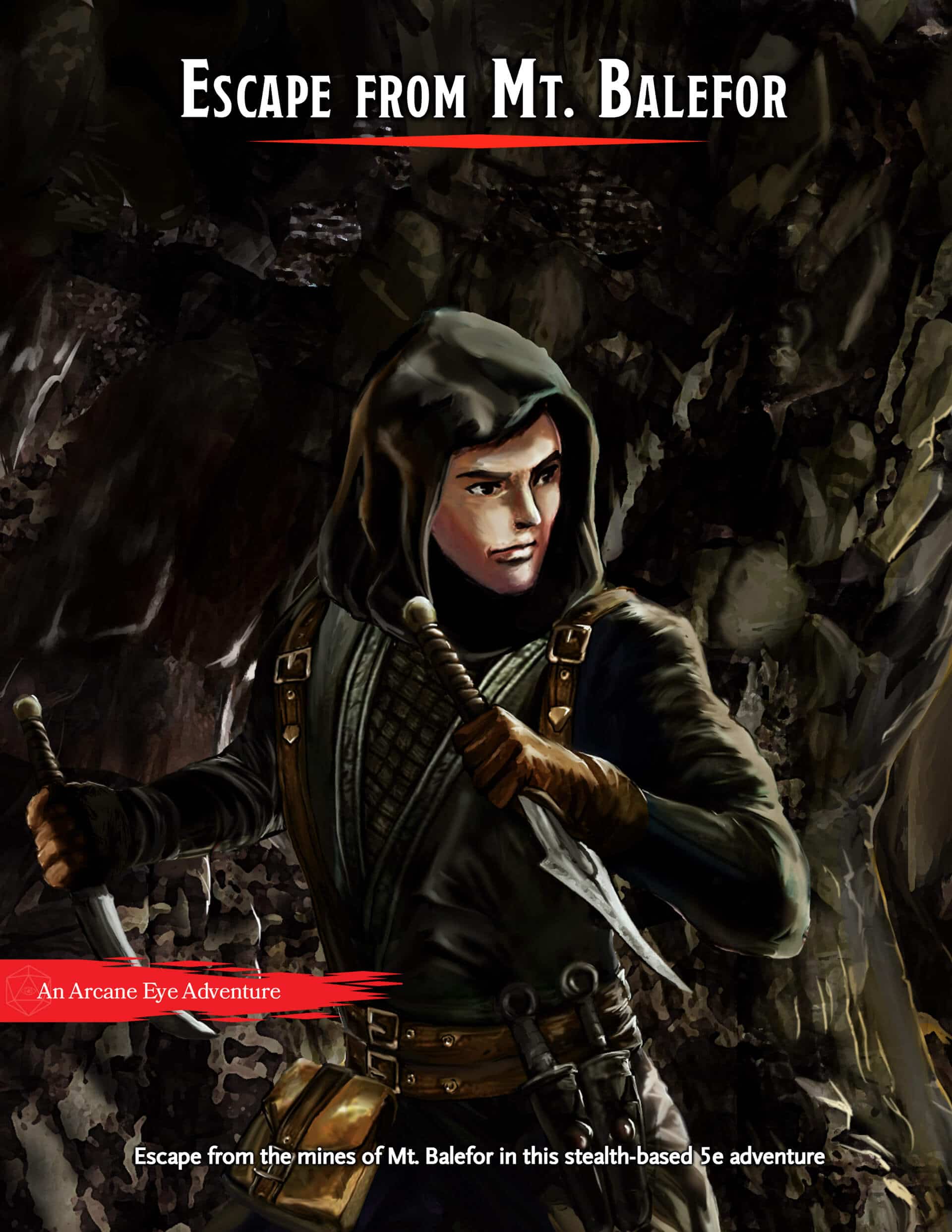DnD 5e Races
Published on June 10, 2020, Last modified on November 7th, 2022
Choosing your race is a huge decision when creating a character. You have to take into account what traits it has, how it will impact the way you roleplay your character, and whether it synergizes well with your build.
Wesley Burt - Wizards of the Coast - Elvish Mystic
What is a Race in DnD 5e?
There are many different types of creatures that call the wondrous, fantastical lands of D&D home. These creatures vary wildly from your plain old humans to axe swinging Orcs to experimental creatures that have been fused together by magic. Many of these creatures started off as a stat block in one of the many monster sourcebooks that have been released by Wizards of the Coast, in order to widen the player’s and DM’s ability to shape their worlds, they have been made into playable races.
What DnD 5e Races Can I Play?
According to the Player’s Handbook, the most common character races are dwarves, elves, halflings, and humans. There are more uncommon races such as dragonborn, gnomes, half-elves, half-orcs, and tieflings. In Volo’s Guide to Monsters, it is mentioned that the supplemental races provided in the sourcebook are rarer than any of the “standard” classes presented in the Player’s Handbook.
Below is a list of all of the playable races in D&D 5e. If you want to learn more about a race or its subraces, click on the “Learn More” button to visit our Race Guide page. Keep in mind that your DM has the final say when it comes to which playable races are included in their campaign.
Playable Character Races in D&D
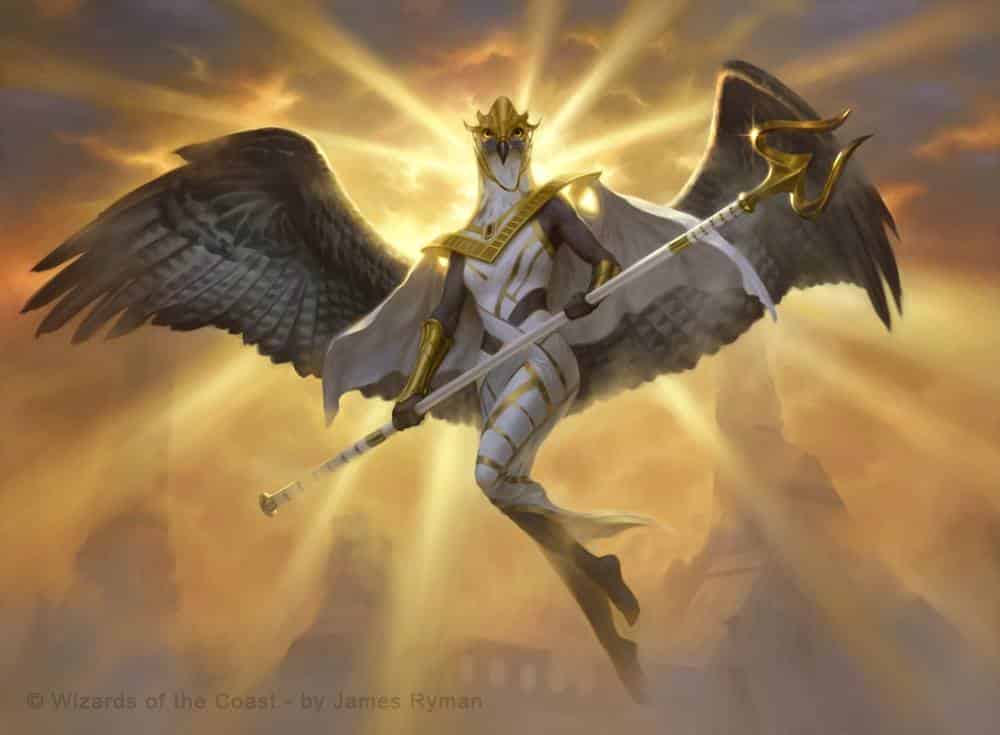
Aarakocra are medium humanoids that resemble, large, bipedal birds. They were the first class introduced in 5e that provides the ability to fly at 1st Level. Note, they are not Adventurer’s League legal.
Learn More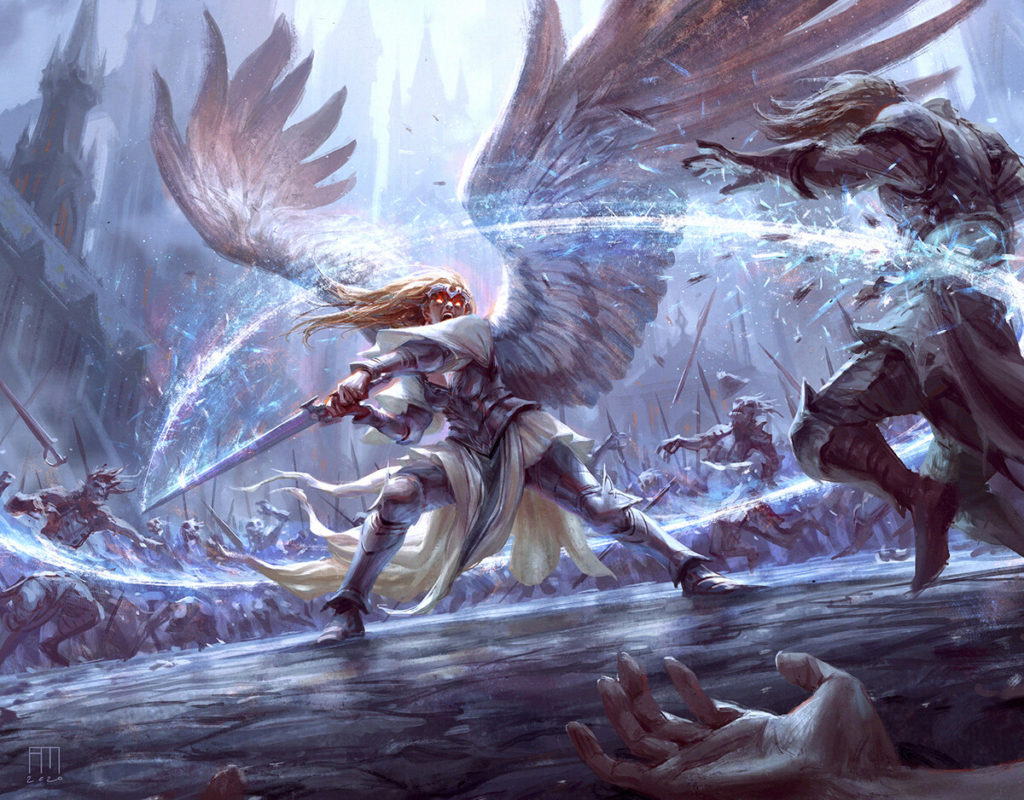
Aasimar are humans touched by the divine power of celestials. They are essentially servants of divine beings that have an angel on speed dial.
Learn More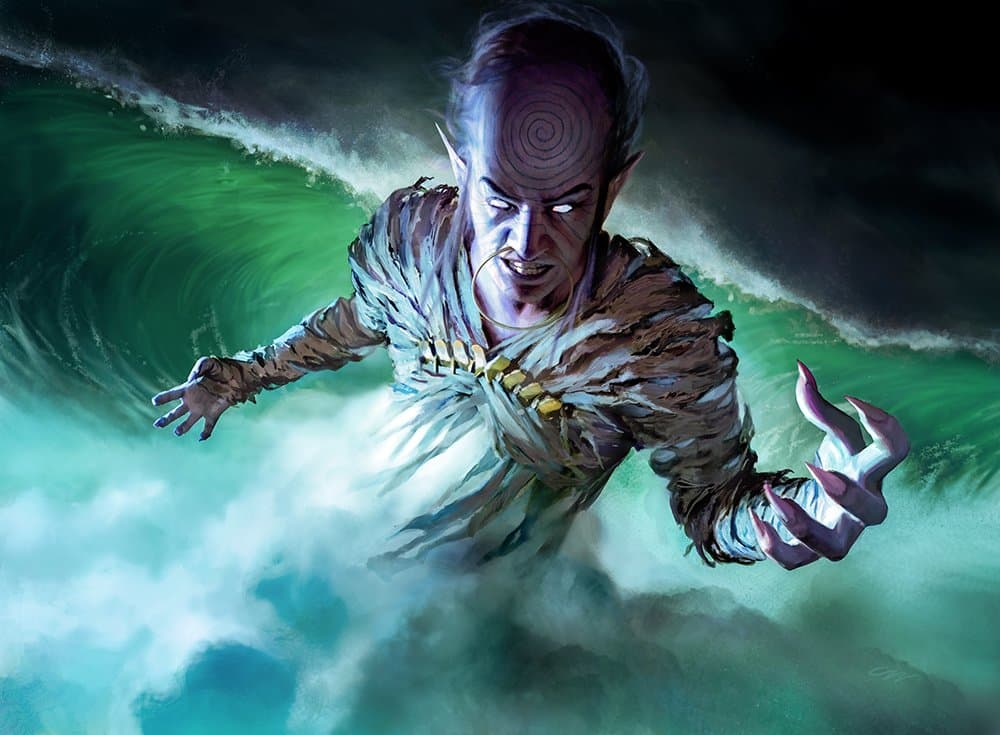
Air genasi are descendants of djinn, genies from the Elemental Plane of Air. On top of similar physical characteristics, air genasi share the ability to control the winds with their predecessors. Typically, their skin is blue, and their hair can range from whispy white tufts to dark, thundering tangles. Djinn are the most amenable genies…
Learn More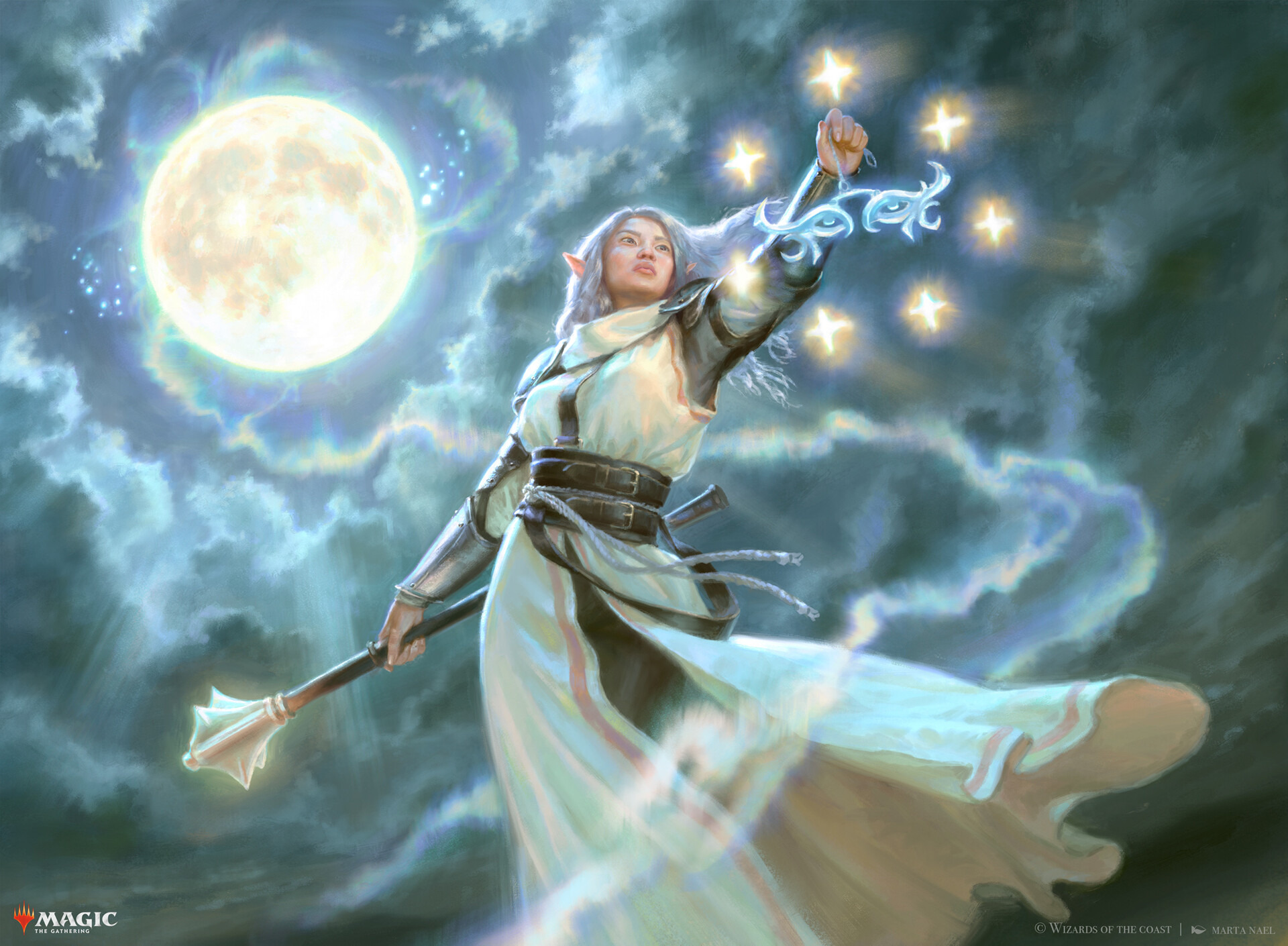
Astral elves are elves that migrated to the Astral Plane from the Material Plane. In the Plane of Thought, there isn’t a need for food or air, and creatures don’t age, so astral elves live near-immortal lives until they venture back into the Material Plane. Because of their long lives, astral elves are aloof and…
Learn More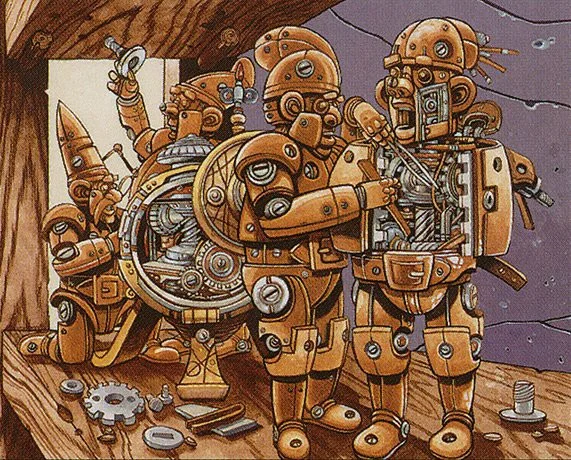
Auto gnomes are sentient robotic creatures that were originally created by gnomes to function as mechanical servants. If an auto gnome is separated from its creator, it begins to develop more autonomy and can decide to strike out on its own adventures. Unlike other construct-like character races, like warforged, auto gnomes are inorganic and are…
Learn More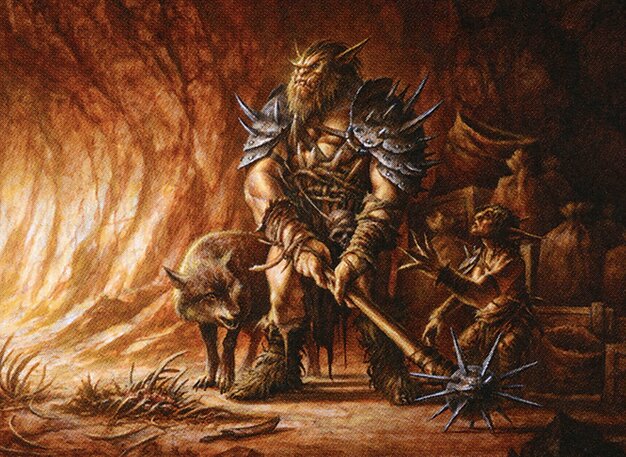
Bugbears are large Goblinoids. They are known for their vicious, antagonistic behavior. Bugbears tend to live in family groups that operate like packs of wolves, with a pack Alpha. They mainly coexist peacefully, but when moods towards the Alpha turn sour, other strong members of the clan may try to oust the Alpha and claim…
Learn More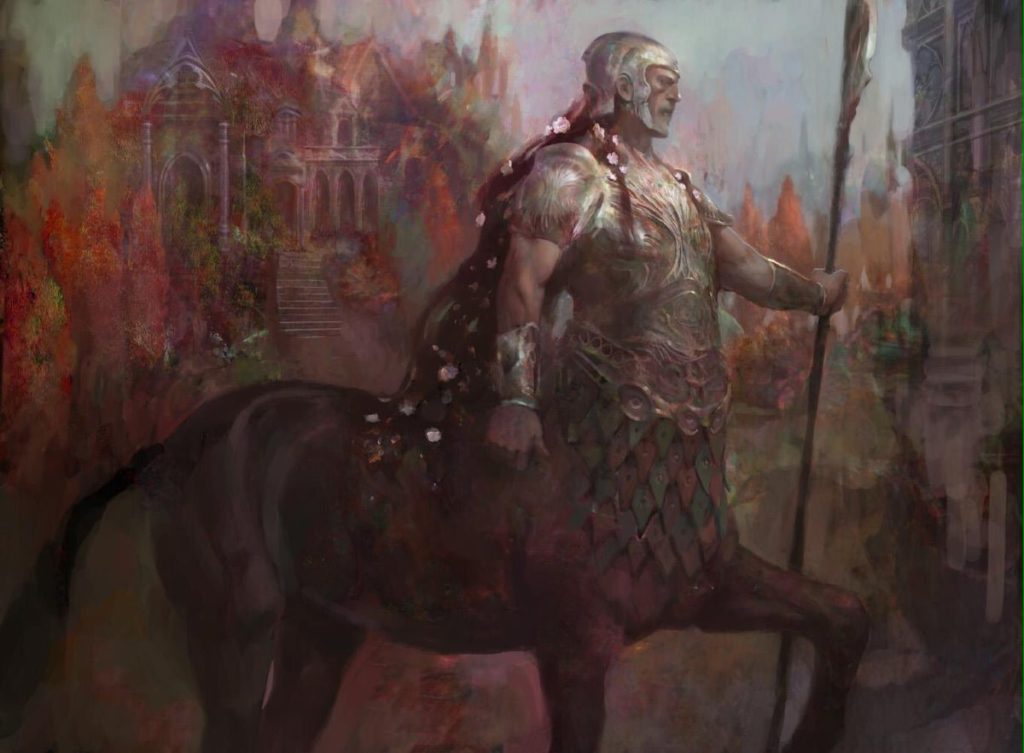
Centaur are half-human, half-horse creatures. They are considered fey instead of humanoid and tend to revere nature in all of its forms.
Learn More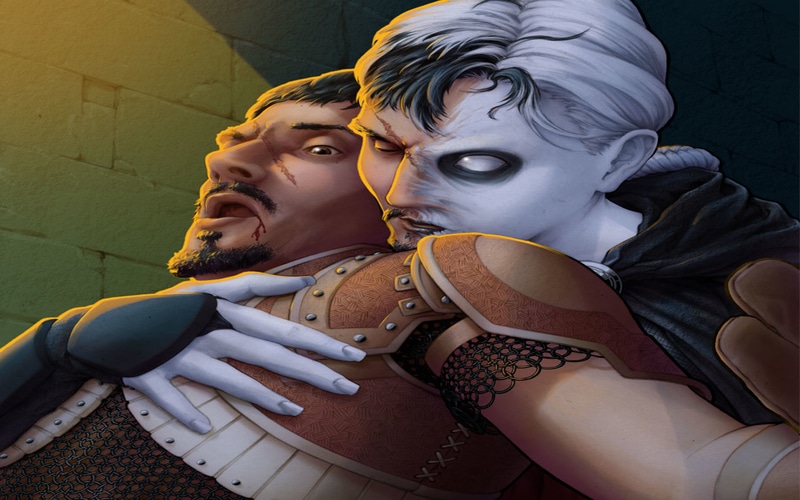
Changelings exist everywhere, whether the people around them know it or not. They may co-exist in a small village with farmers and traders, or live in nomadic changeling clans that wander the world in homage to their god the Traveler. Able to completely change their voice and appearance at will, it is not uncommon for…
Learn More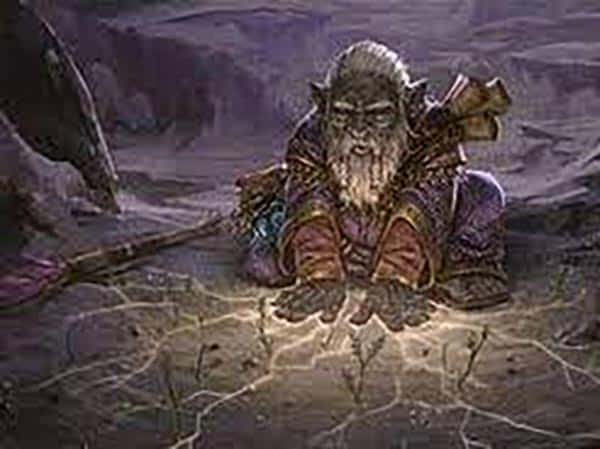
Deep gnomes, also known as svirfneblin, are a rare and secretive race of gnome in D&D 5e. With their tough, wiry frames and innate cunning, deep gnomes are well equipped to survive in the dangerous depths of the Underdark. Unlike other races of gnomes, deep gnomes tend to be more cautious and reserved. The secrets…
Learn More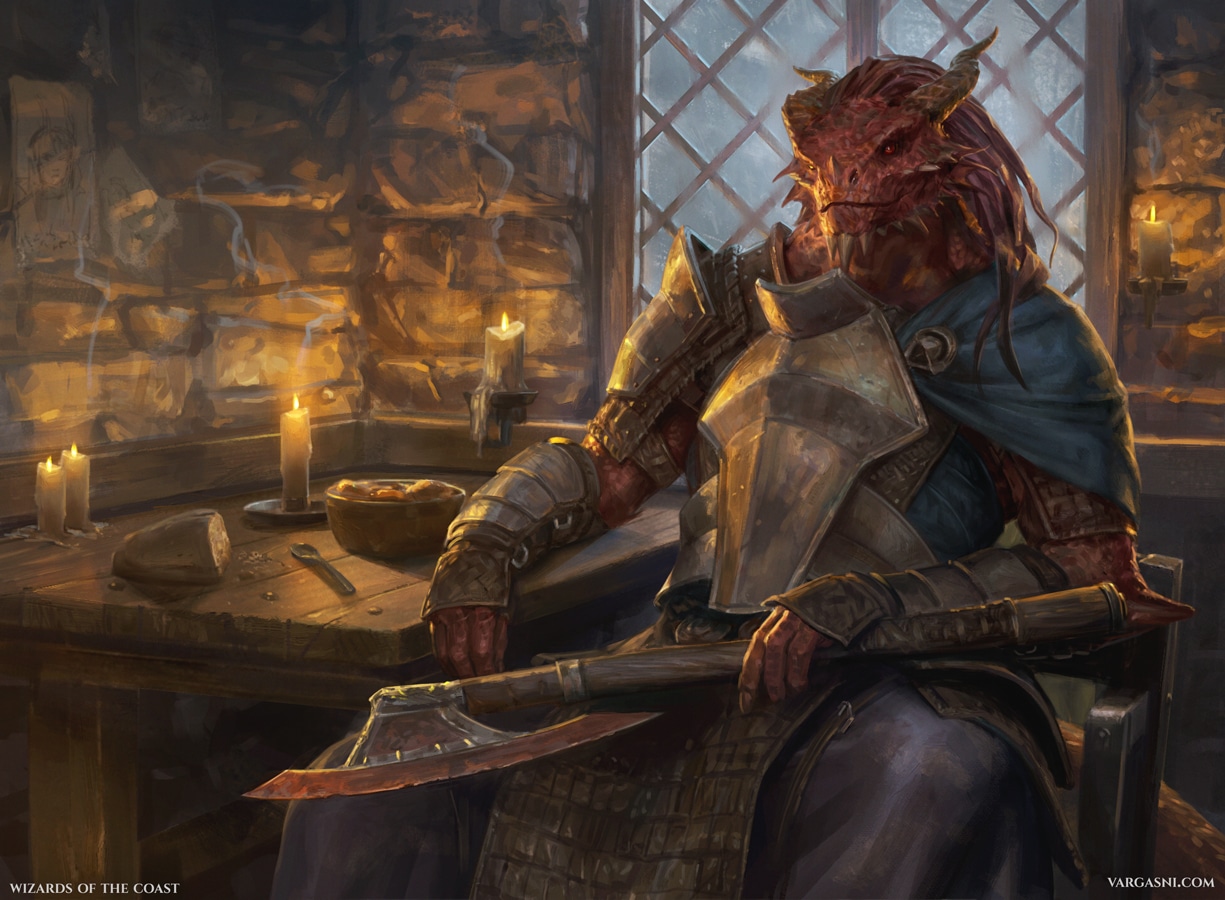
Dragonborn are bipedal, dragon-like creatures that originally hatched from dragon eggs. These creatures have scales, taloned arms and legs, and long, reptilian faces that resemble their elder kin. The color of a dragonborn’s scales resemble the dragon that they descended from. Dragonborn are notoriously proud beings and their clan is more important than life itself.
Learn More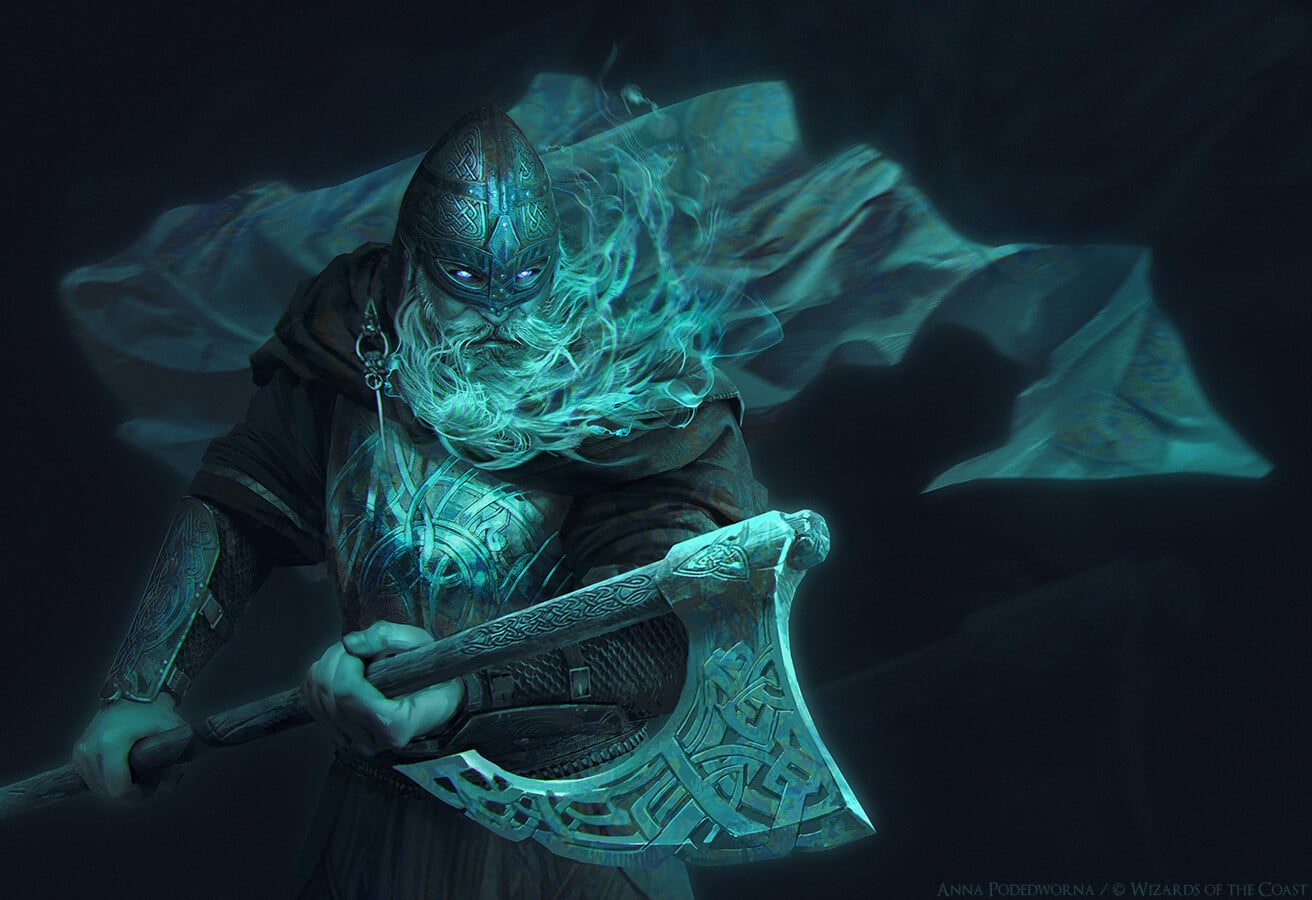
The duergar are a race of short, stout humanoids that hail from caves and other underground environments. Sometimes called gray dwarves, the duergar’s strange magical abilites are fueled by the mysterious Underdark, making these hardy creatures effective in dark, dangerous environments. In 5e, duergar are a playable race that can excel in any role. They…
Learn More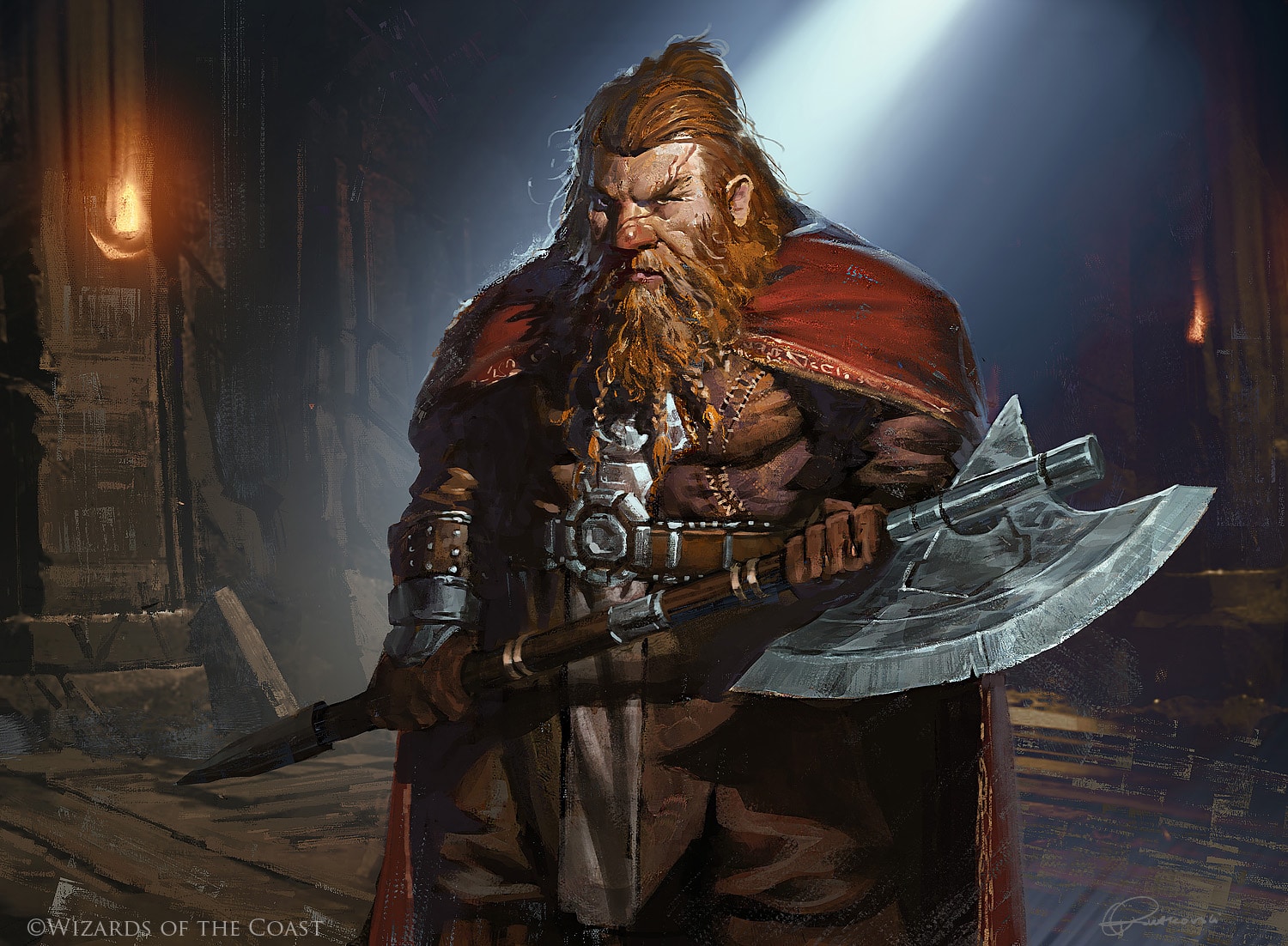
Bold and hardy, dwarves are known as skilled warriors, miners, and workers of stone and metal. Though they stand well under 5 feet tall, dwarves are so broad and compact that they can weigh as much as a human standing nearly two feet taller. Their courage and endurance are also easily a match for any…
Learn More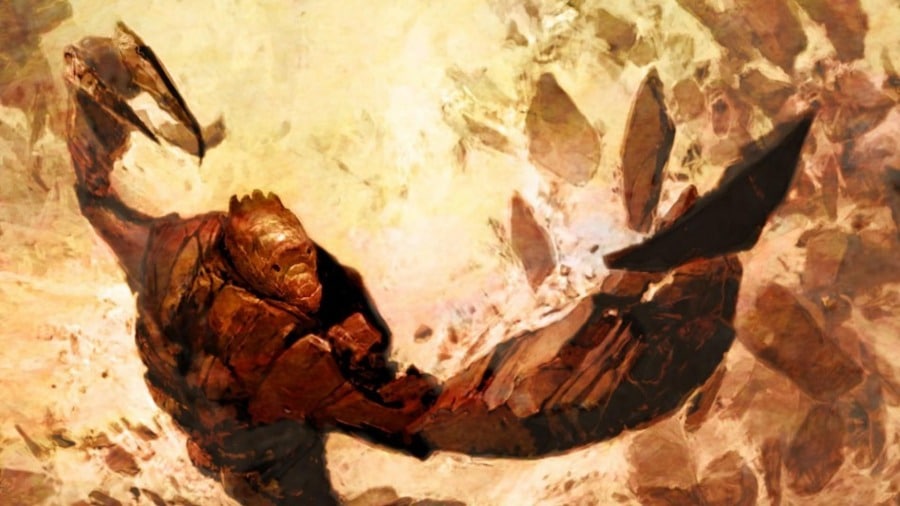
Earth genasi are a race of humanoid creatures who descended from the vain and greedy dao—genies from the Elemental Plane of Earth. They tend to be strong, resilient, and hardy, with cracks running through their earth-infused skin. Their hair can range from earth tones like brown and gray to more vibrant hues like red or…
Learn More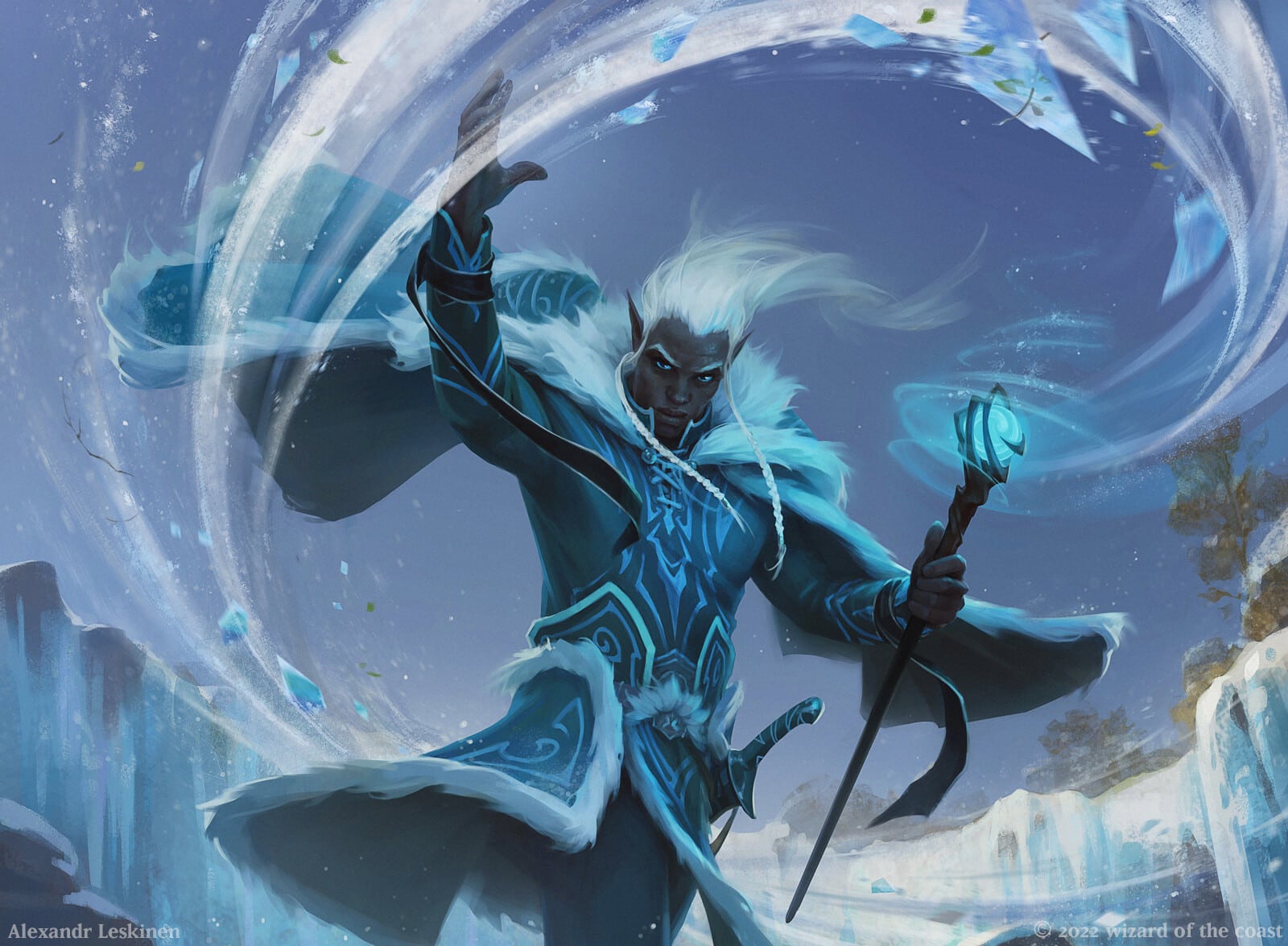
Eladrin are elves that travelled to the Feywild after they were banished from their primordial home world of Arborea. They settled in the Land of Faerie because the powerful, natural magic made the Feywild feel similar to previous home world. During their time in the Feywild, the elves were influenced by the chaotic magic of…
Learn MoreElves are a magical people of otherworldly grace, living in the world but not entirely part of it. They live in places of ethereal beauty, in the midst of ancient forests or in silvery spires glittering with faerie light, where soft music drifts through the air and gentle fragrances waft on the breeze. Elves love…
Learn More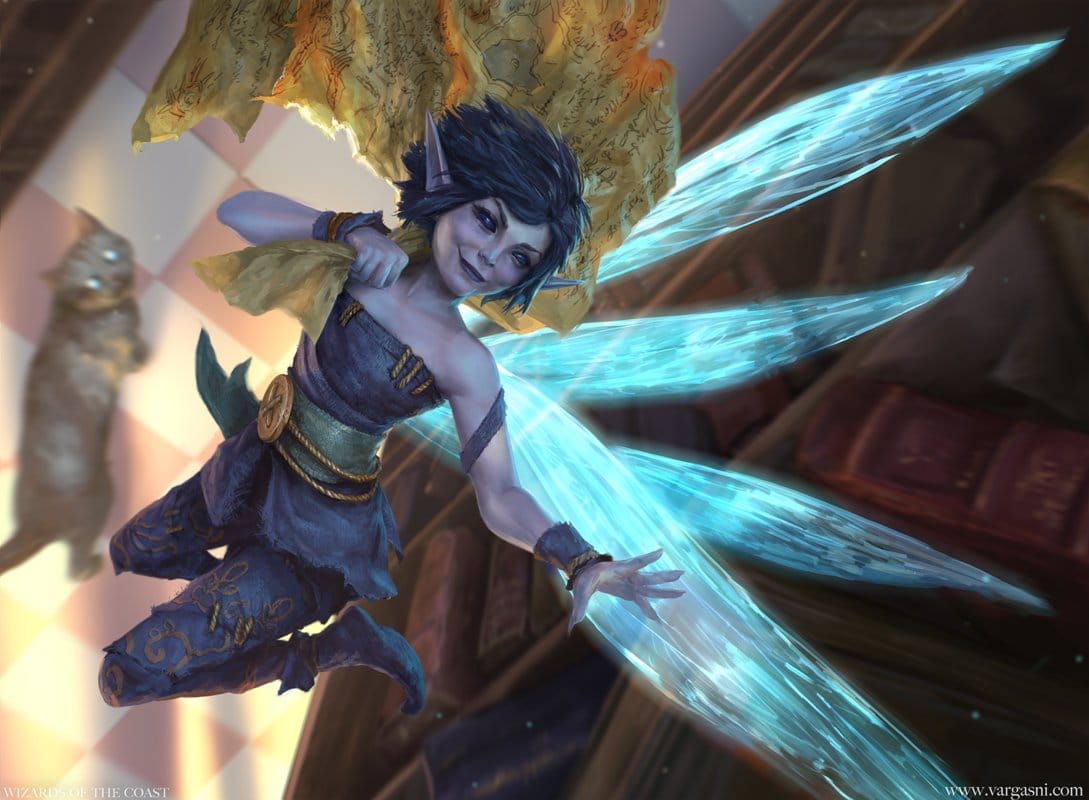
Fairies are small, winged folk the originated from the Feywild. Most fairies appear as miniature elves with insectile wings, but like other races, each has their own distinguishing features. Due to their connection with the Feywild, fairies are innately magical and have a whimsical nature that is ruled by impulse and emotion.
Learn More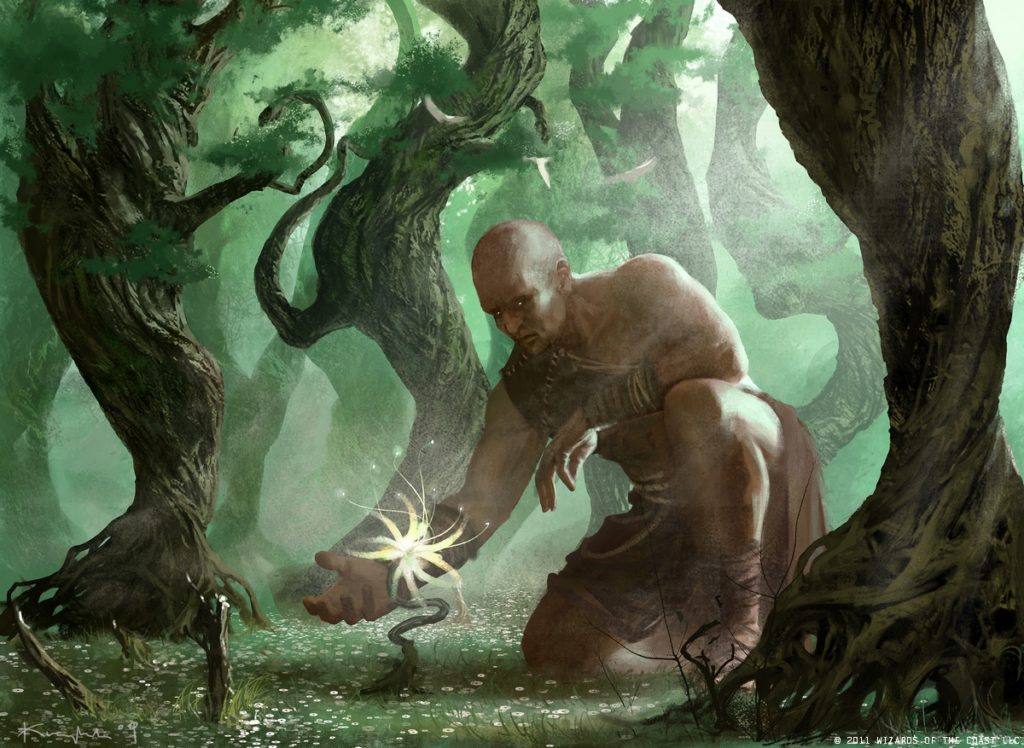
Firbolgs are considered the most intelligent of giant folk. They are typically calm, nature-loving creatures that prefer to spend their time in their forest sanctuary. Firbolgs have a strong, innate talent for druidic magic. This magic aids them as they tend to their forests and defend them from those who would do them harm.
Learn More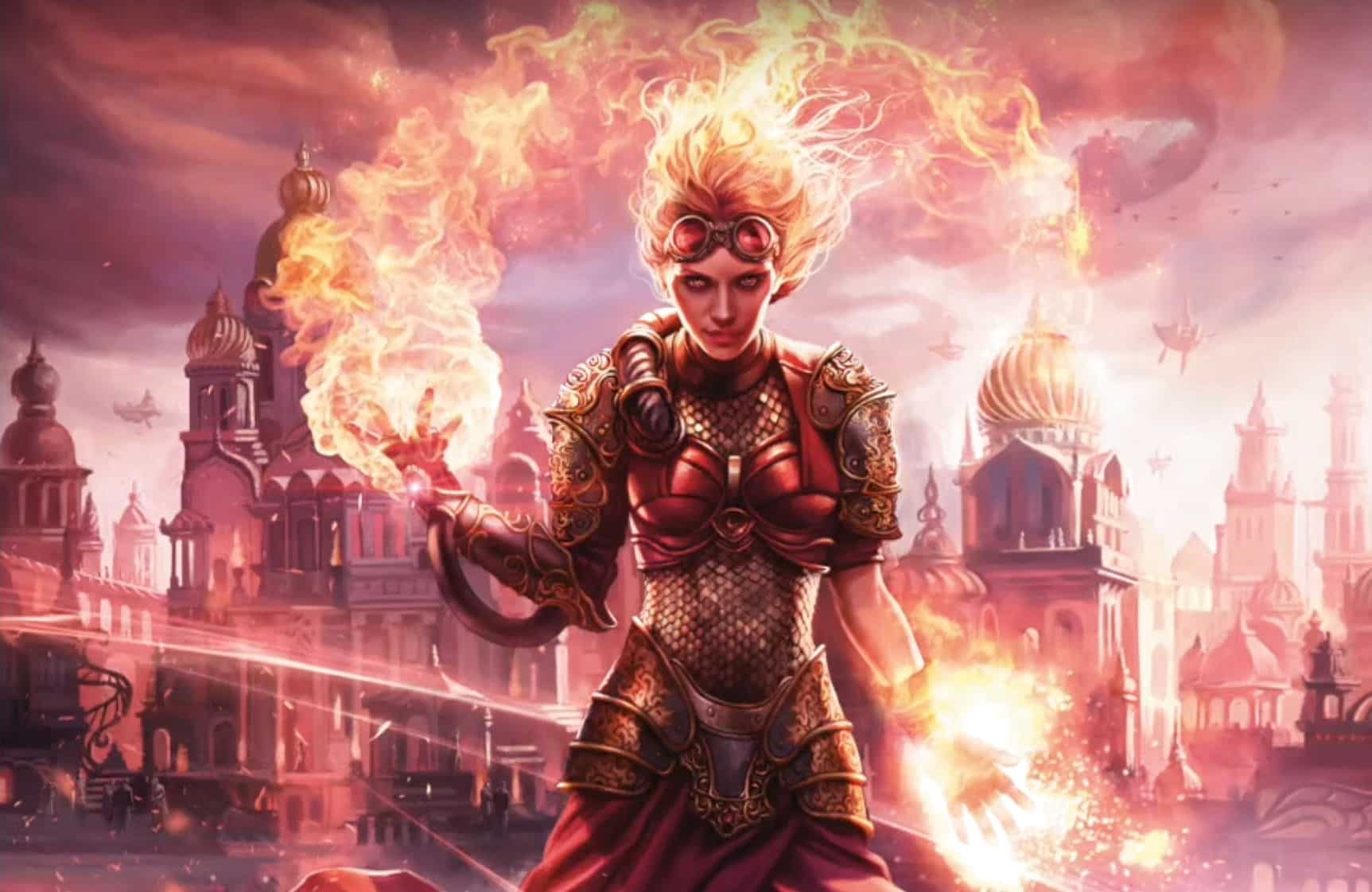
Fire genasi are humanoids descended from the efreet, genies from the Elemental Plane of Fire. Able to channel the fiery powers of their ancestors, fire genasi can produce and manipulate flames to enhance their abilities in combat. They’re affinity with fire also manifests as a resistance to fire damage, allowing them to venture into normally…
Learn More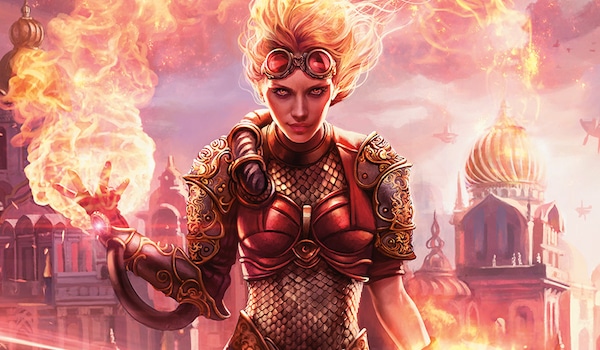
It is said that sometimes powerful genies from the Elemental Planes travel to the Material Plane and disguise themselves as mortals. On occasion, romances form between disguised genies and mortals, the resulting offspring of which are known as the genasi. Due to their lineage, genasi are infused with elemental power. These elements play a role…
Learn More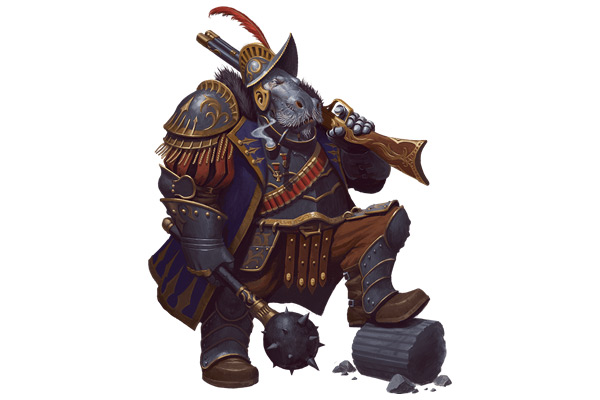
Giff are hippo-human hybrids that tend frequent the Astral Seas of Spelljammer campaigns. Their large stature, proficiency with firearms, and brash nature tend to make quite the impression on other travelers that giff meet along their journeys.
Learn More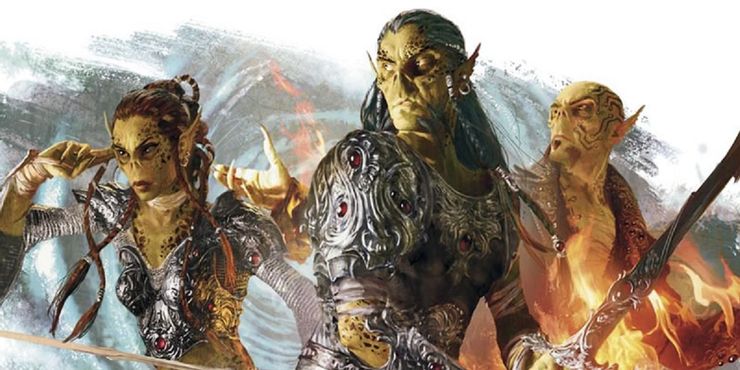
The gith, once servants of the mind flayers, overthrew their masters to obtain freedom. After their victory, two factions quickly formed with opposing views on how they should move on with their lives. The githyanki are angry at their circumstances, believing they have the right to to kill whoever and take whatever they want. Their…
Learn More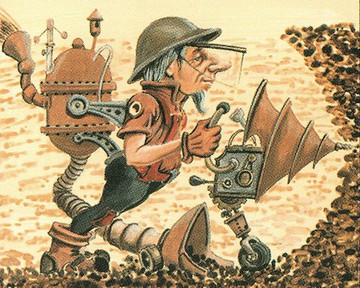
Gnomes are short and inquisitive creatures. Standing on average 3ft tall and weighing in at just over 40lbs, gnomes love to look at life from the technical side. Their inquisitive nature tends to drive them towards professions such as engineers, alchemists, tinkers, and inventors.
Learn More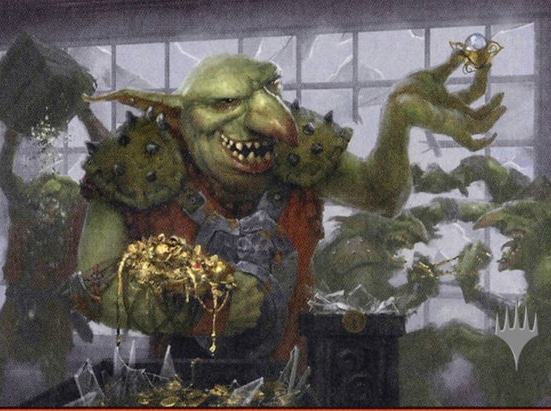
Originally the cliché monster intended for a campaign’s first low-level combat encounter, goblins became a playable race in Volo’s Guide to Monsters. They are small, evil humanoids that typically live together in caves, venturing out to ambush unsuspecting prey. As self-serving as they are greedy, travelers should always be wary of encountering goblins. With the…
Learn More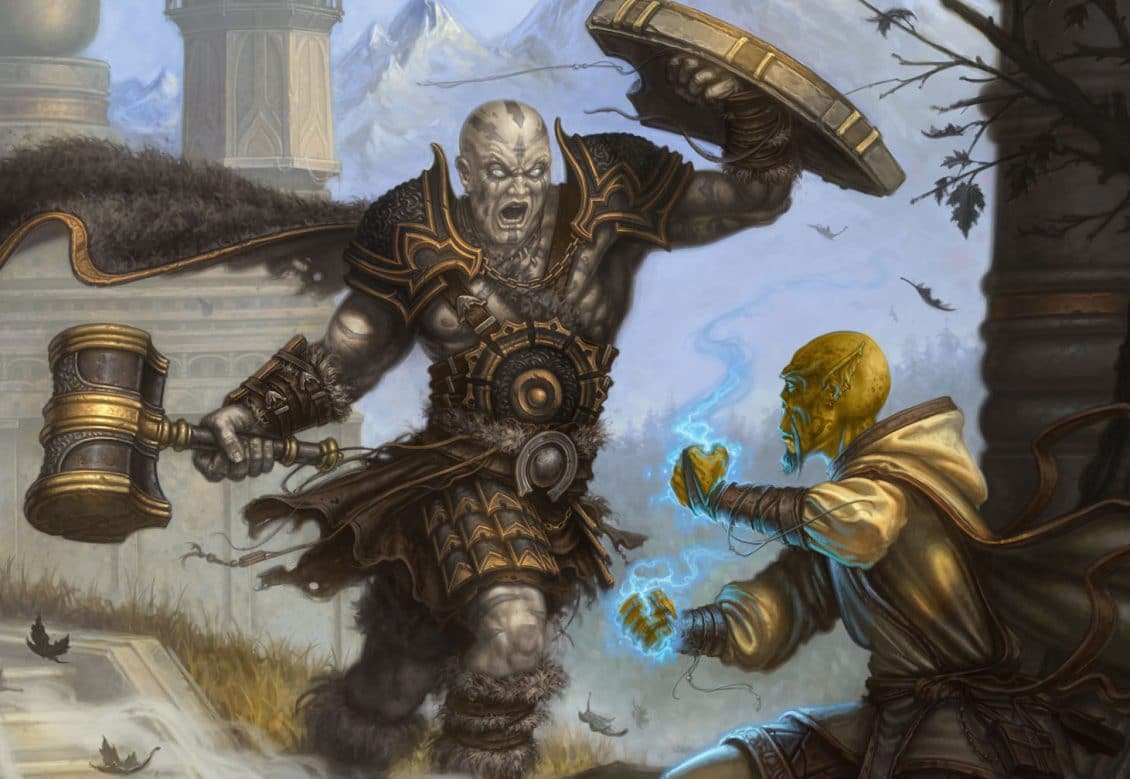
Goliaths are a solitary race, choosing to live on the most treacherous of mountain peaks away from prying eyes. Their large stature, great strength, and resistance to the elements has allowed them to survive in extreme frigid conditions. Goliaths have strong ties to their nomadic tribes, and are driven by a fierce competitive nature that…
Learn More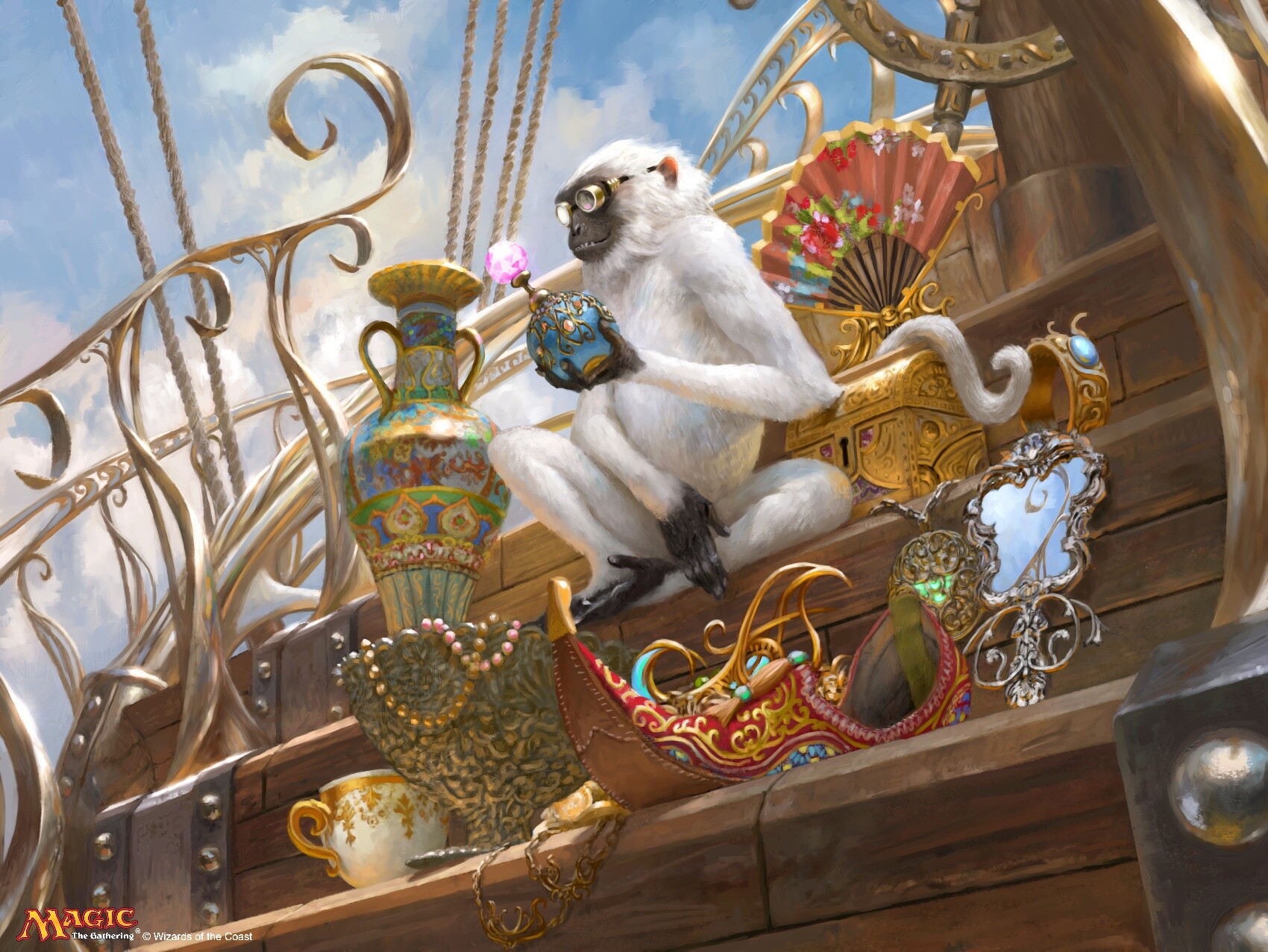
Hadozee are space-faring humanoids that evolved from monkey-like creatures on a distant world. They have large skin flaps under their arms that allow them to glide through the air and, when combined with their propensity for climbing, can allow them abilities akin to flight.
Learn More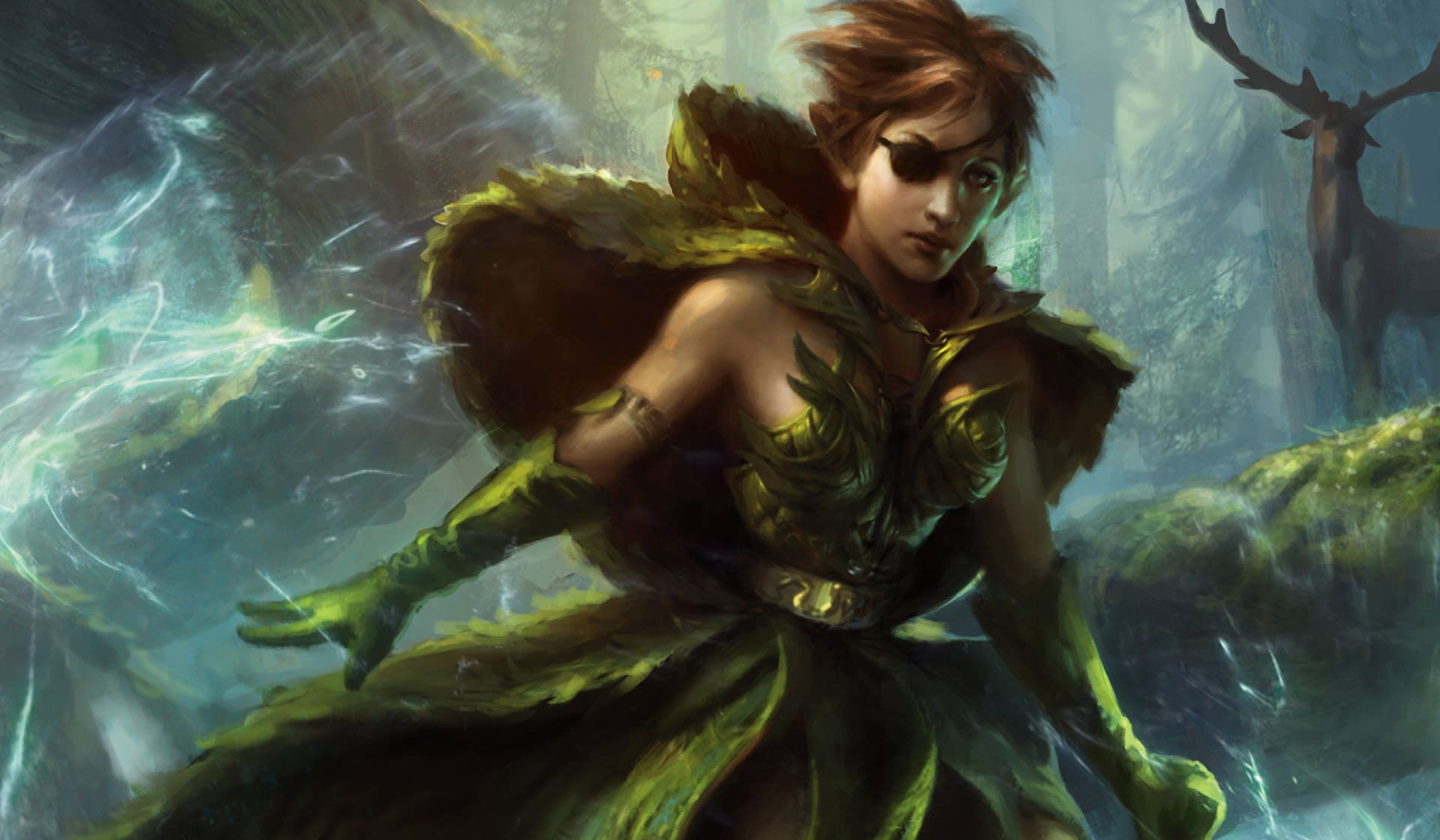
Half-elves are a race that is split between two worlds. Humans and elves are about as different as you can get when it comes to their perspective on the world around them, this is mainly due to one main factor: time. Half-elves who choose to walk among humans see their friends and loved one’s age,…
Learn More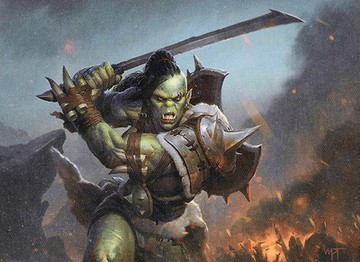
Half-orcs are creatures that, like half-elves, are caught between two worlds. They are constantly at war with the two halves of their nature and have trouble belonging anywhere. Half-orcs’ skin usually takes on the color from their orc parentage. They also acquired other orcish features like sloped foreheads, and jutting jaws that make their orcish…
Learn More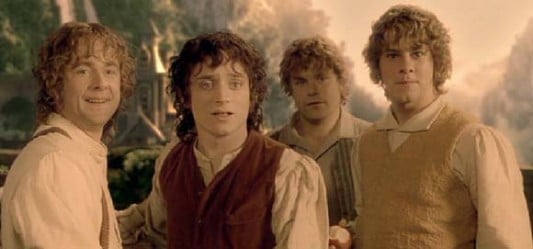
Halflings are short, stout creatures that tend to find a balance in stature between the bulky dwarves and the thin, wiry gnomes. Halflings are a well-natured bunch and enjoy the simple pleasures in life. They love to spend their time in the quiet land of their shires or the community among their band of adventurers.…
Learn More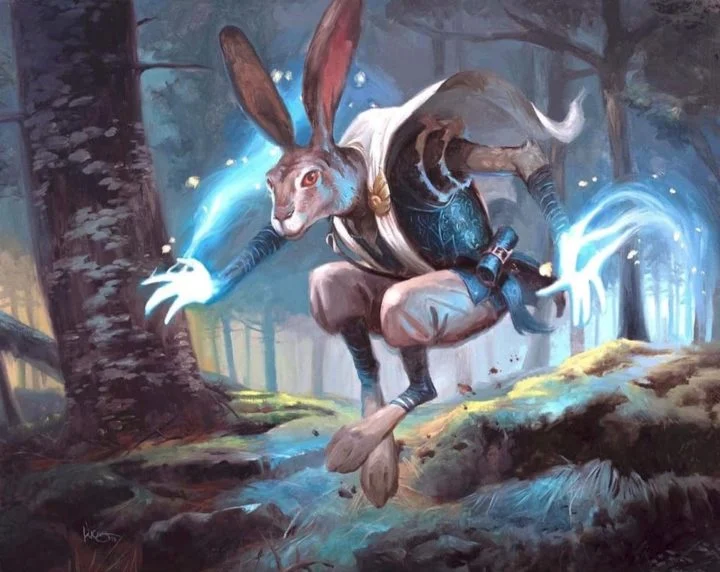
Harengon are bipedal rabbitfolk that originated in the Feywild. Eventually, their free-spirited nature led them to other planes of existence where they have settled and lost some of the influence the Feywild had on their biology. The haregon’s rabbit-like features, such as their tall ears and long feet, allow them to perceive danger and react…
Learn More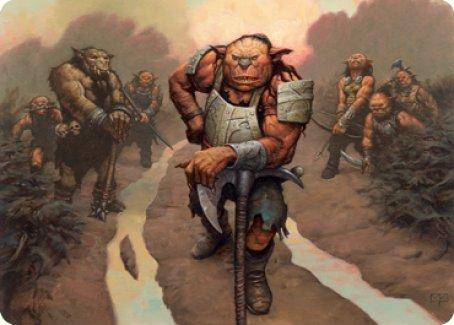
If there is one thing hobgoblins love, it’s war. Even in times of peace, hobgoblin society is rich with military tradition, brutal laws, and a strict military hierarchy. Following orders and honoring the gods are non-negotiable rules in hobgoblin society, and all are meant to help achieve their most important goal – upholding the legion.…
Learn More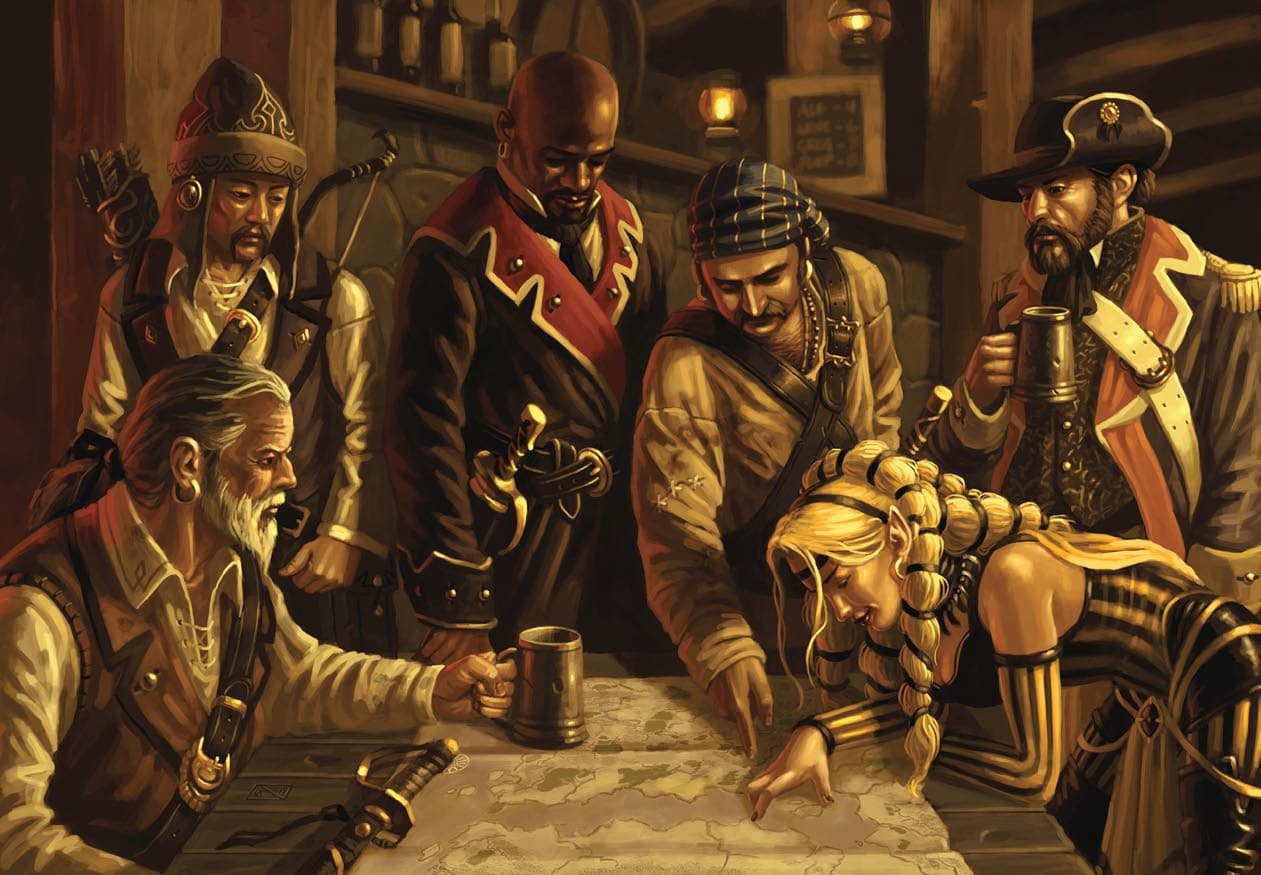
If you’re reading this you are most likely a human, and therefore know what a human is! Humans are known to be the youngest of the races that one commonly sees when walking the streets of any given town or community. They also have the shortest life span of the common races, which could be…
Learn More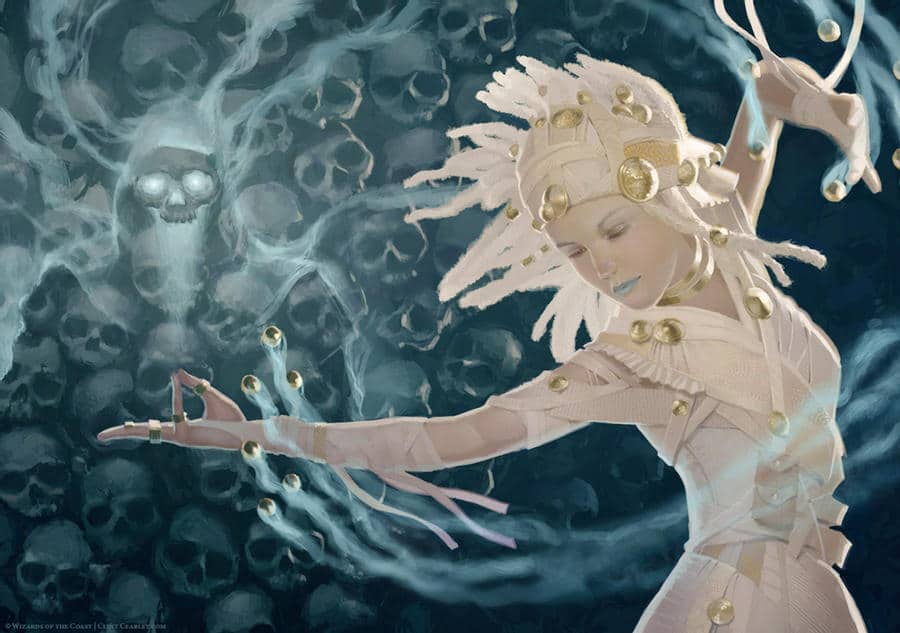
Kalashtar, native to Eberron, were humans that have been intertwined with spirits from the plane of dreams. Although they appear human, kalashtar are deeply in tune with spirituality, granting them slight psychic abilities. They cannot directly communicate with the spirits they are linked to, but instead feel them through emotion, instinct, and see them in…
Learn More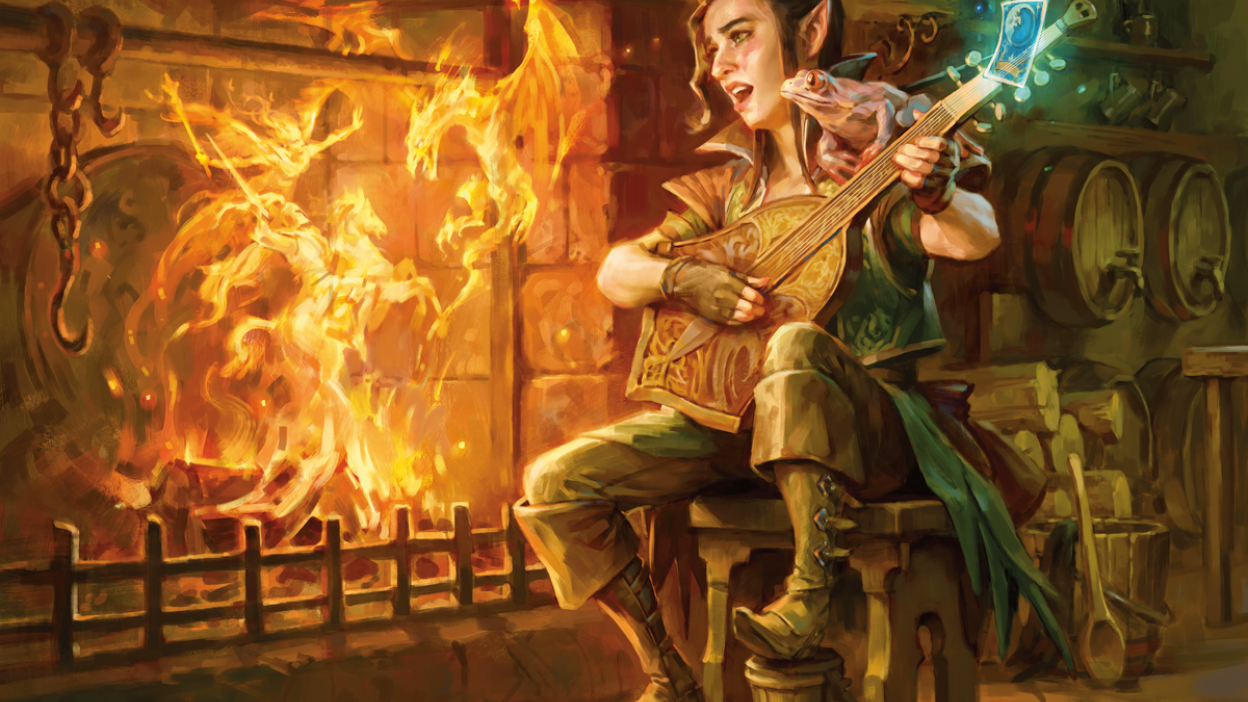
Kender are curious folk that originated on Krynn, the world of the Dragonlance setting. These creatures descended from gnomes and share the same small stature, though they were imparted with a supernatural ability to get into trouble, partly because of their inquisitiveness and party because of their fearless nature. Kender traditionally wear topknots, which they…
Learn More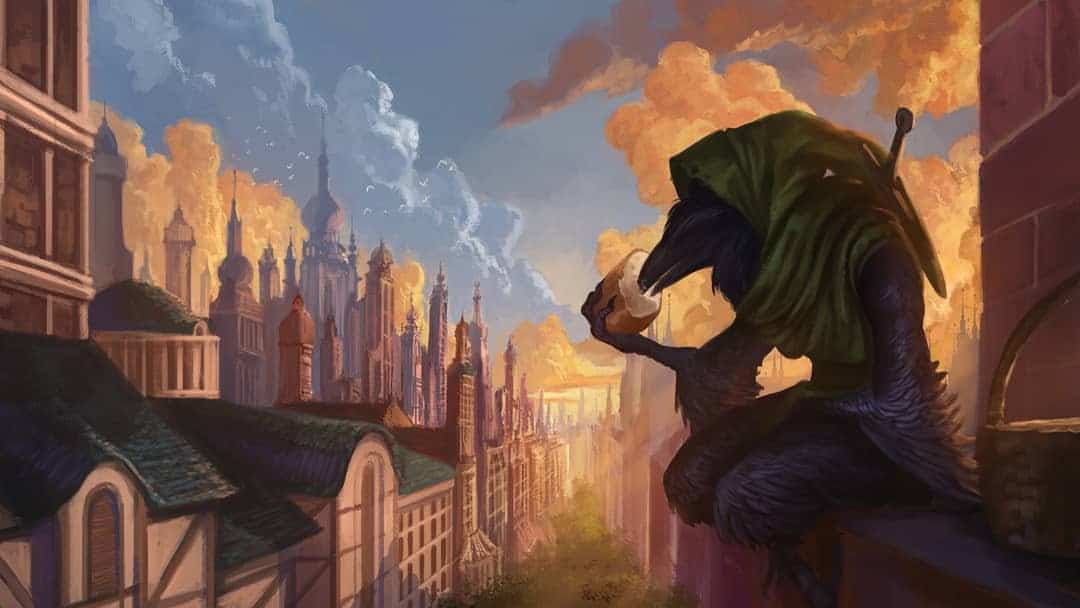
Kenku are a cursed race of avian humanoids. The curse, brought on by their betrayal of their otherworldly master, has caused them to lose their ability to fly (a relief for any DM) as well as the ability to speak without using their Mimicry trait. Hoping to fly again one day, many kenku have set…
Learn More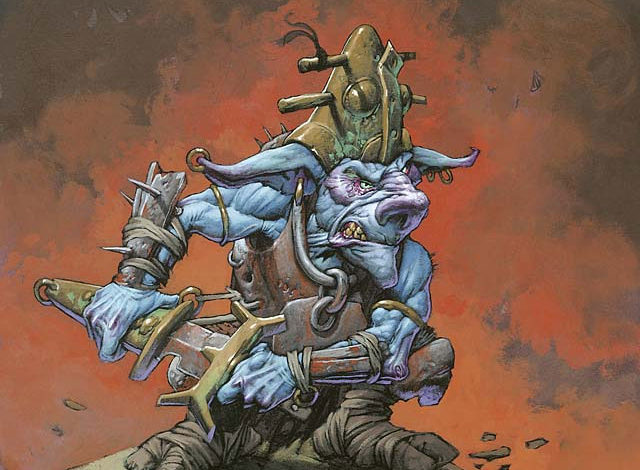
Kobolds are a common enemy fought in low-level combat encounters. These small, reptilian humanoids became a playable race in Volo’s Guide to Monsters. With the addition of kobolds as a playable race in D&D 5e, there is a whole new avenue for roleplaying and storytelling that playing a monster brings to the table. If your…
Learn More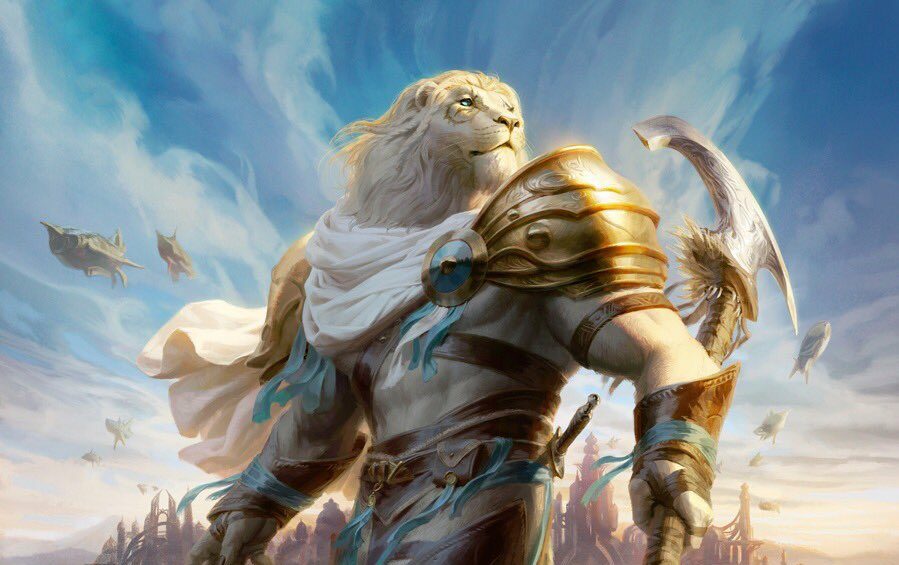
Leonin are noble, fierce creatures native to the plains of Oreskos on Theros. They typically live in nomadic tribes and tend to have an unfavorable view on outsiders. Leonin are quick to anger and will retaliate against even the slightest insult to their honor or pride. Larger than most humanoids, most leonin have powerful builds…
Learn More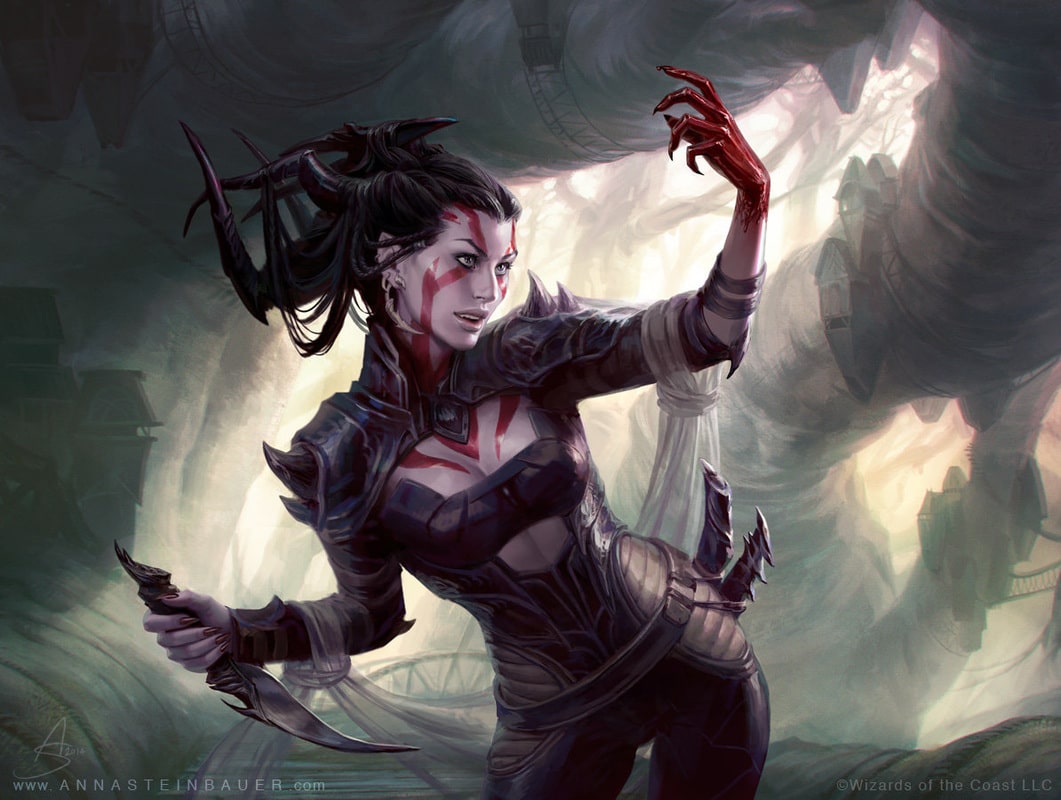
Lineages represent magical transformations that your character has undergone that change their physiology. Whether you have been bitten by a vampire, infused with eldritch magic, or reborn into a new life, these lineages will provide you with additional features and traits that represent your new-found abilities. All of the below subraces allow you to choose…
Learn More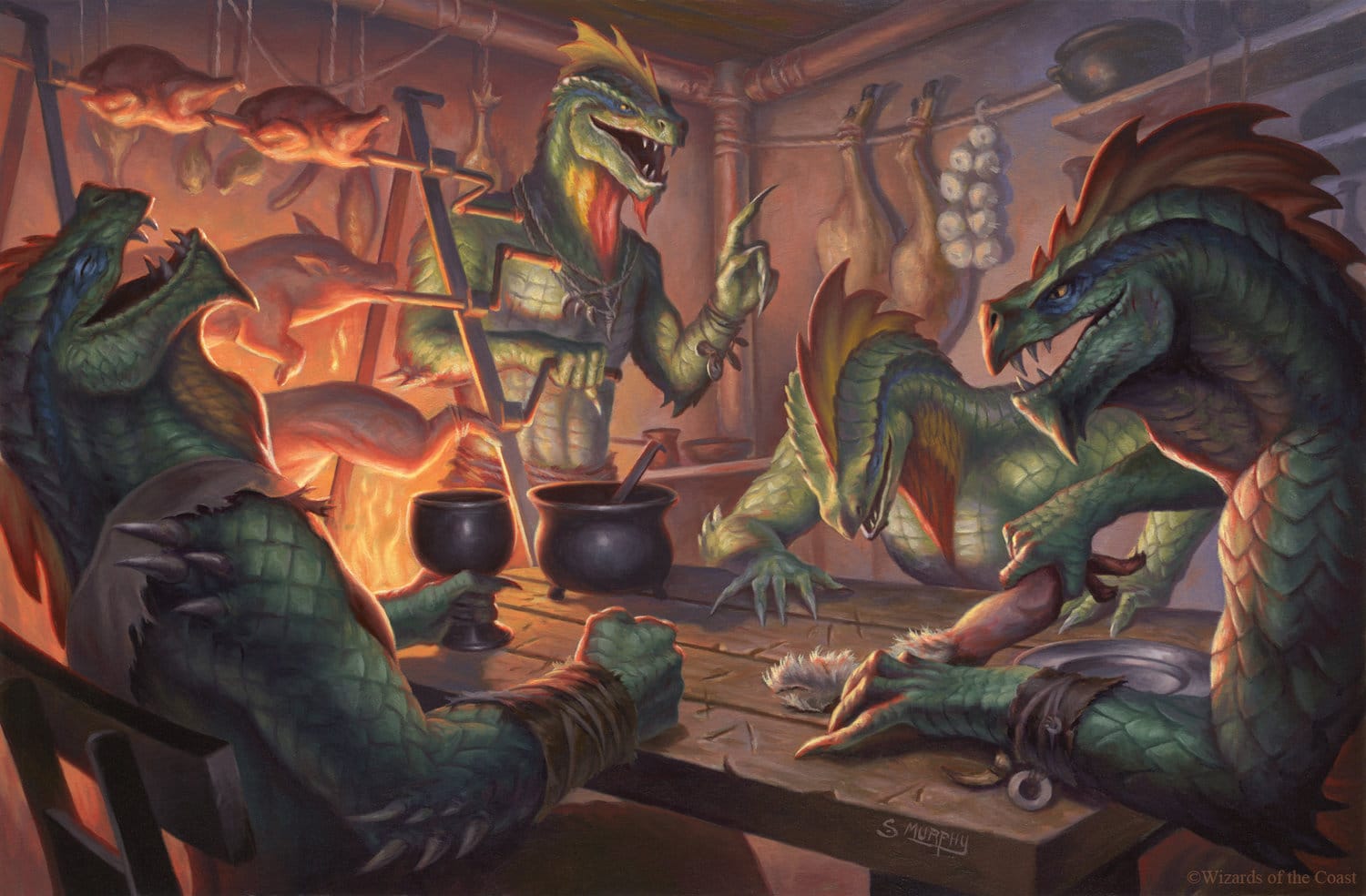
Lizardfolk are not your typical swamp-dwelling humanoids. Unlike races such as the dragonborn, the way a lizardfolk’s mind works is completely different from most of the sentient races in the world of D&D. Lizardfolk see the world in a much more primal way, experiencing emotions in a less complex manner and categorizing those they come…
Learn More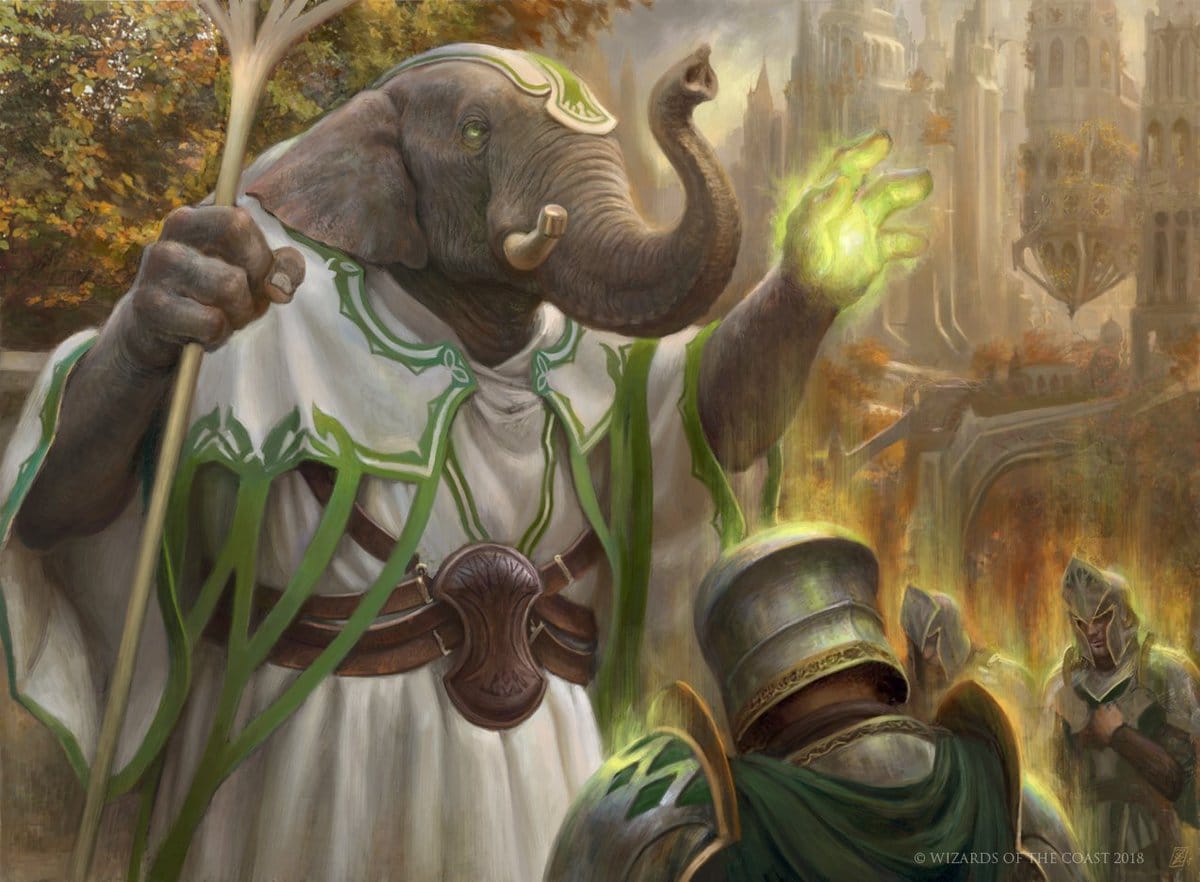
Loxodon are humanoid elephants native to the plane of Ravnica. These 7 foot tall elephants value wisdom and peace over everything, and do not consider their kind to reach adulthood before the age of 60. Loxodon are extremely loyal and can be quite fearsome when they or their friends are threatened. Although they are very…
Learn More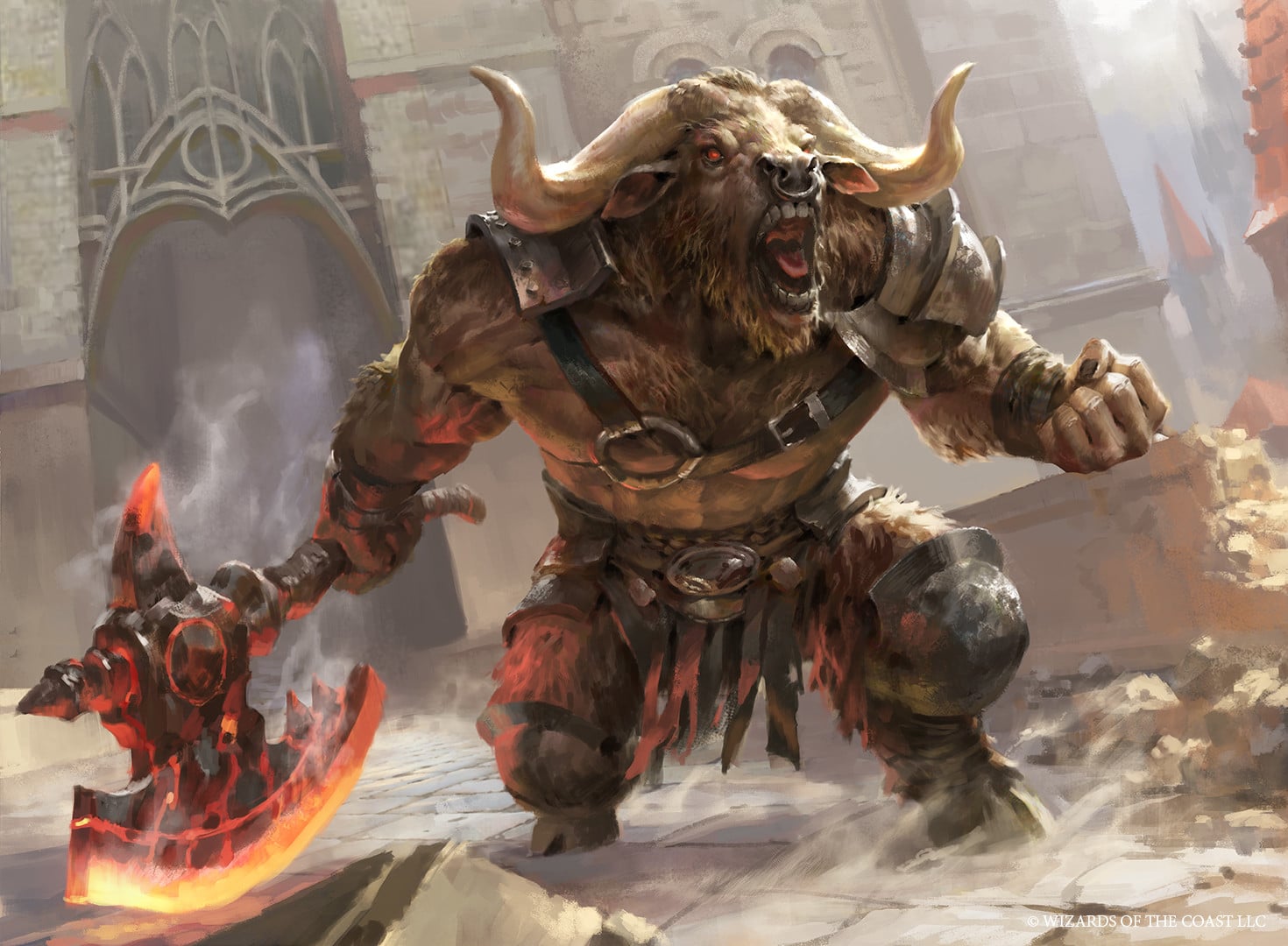
Minotaurs are burly, battle-loving humanoids with the head, hooves, and tail of a bull. While they are known to solve their problems through violence, minotaurs enjoy spending time with their friends and know how to have a good time. Minotaurs are a playable race found in Guildmasters’ Guide to Ravnica as well as in Mythic…
Learn More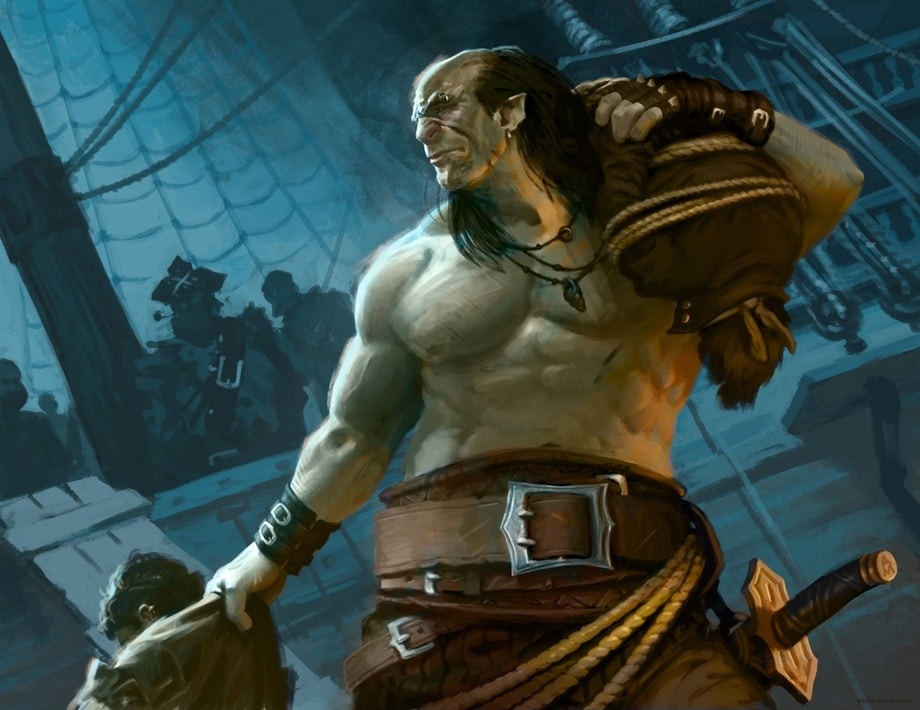
Orcs exist in many fantasy-related media. Typically portrayed as hulking, brutish humanoids with a thirst for blood, these beings have been given a fresh coat of paint depending on the setting in D&D. On Exandria, orcs are plagued by a curse and some have taken to following the law very strictly. On Eberron, orcs are…
Learn More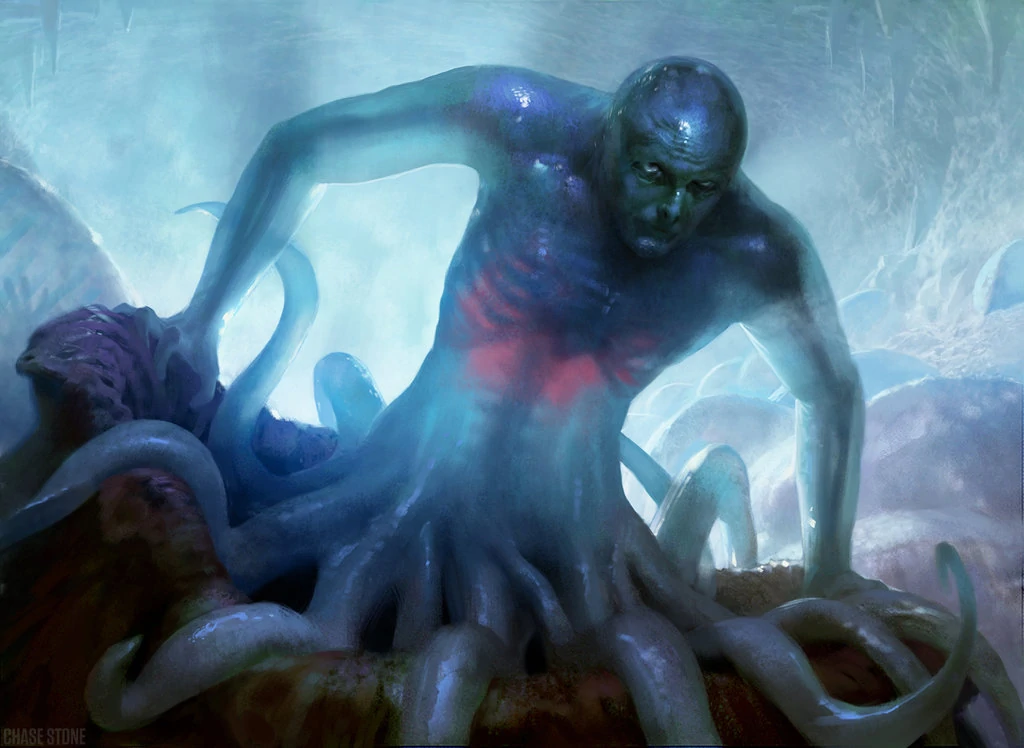
Plasmoids are sentient ooze creatures that exist out in the depths of Wildspace. These creatures can mold their amorphous bodies into various shapes, allowing them to appear almost humanoid, create tentacles, or appear as a limbless blob. Appearing as the first playable Ooze character type in Spelljammer: Adventures in Space, plasmoids are a very unique…
Learn More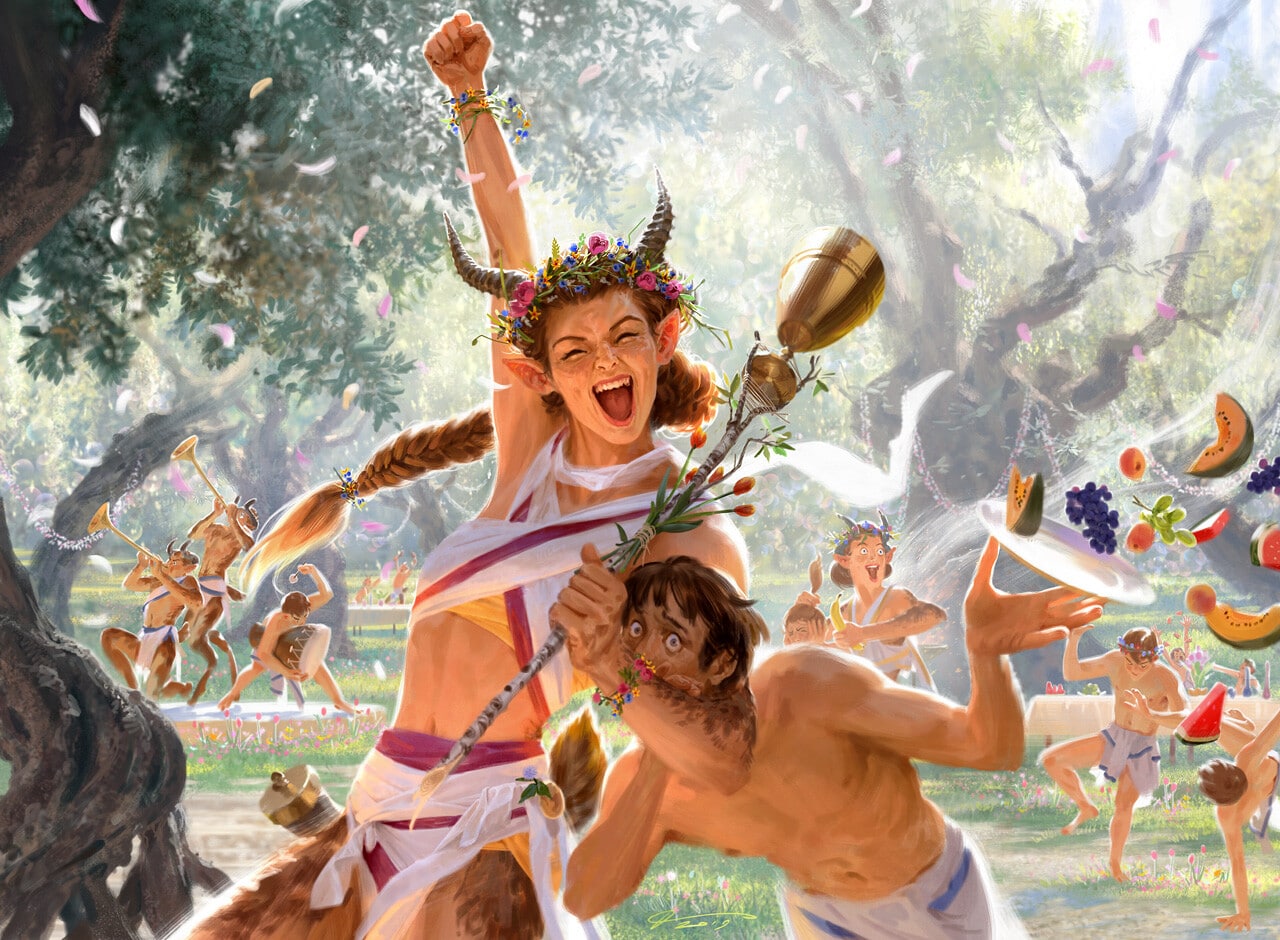
Most satyrs appear as half-humanoid, half-goat creatures that stem from a cross between nature spirits and humans. Most satyrs are easily identified by their goat horns and goat lower extremities. Satyrs are known for their hedonistic tendencies. They typically lack restraint and will follow whichever of their fancies they desire at the time.
Learn More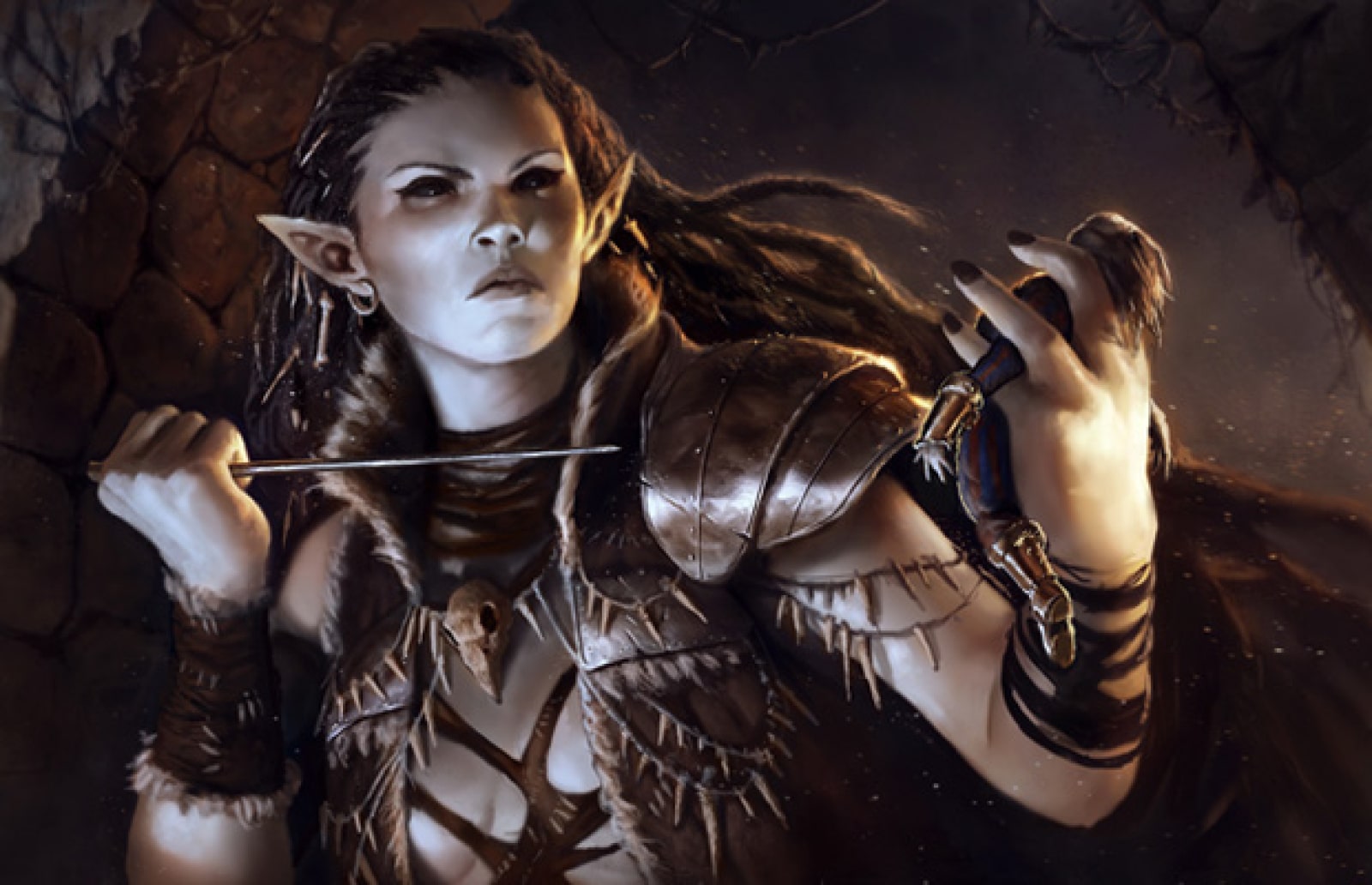
Shadar-kai are known for their dark, shadowy appearance and their association with the Shadowfell—a plane of existence that exists parallel to the Material Plane and is associated with death and darkness. In D&D, shadar-kai are typically depicted as highly skilled and agile warriors, with an affinity for magic and the ability to teleport short distances…
Learn More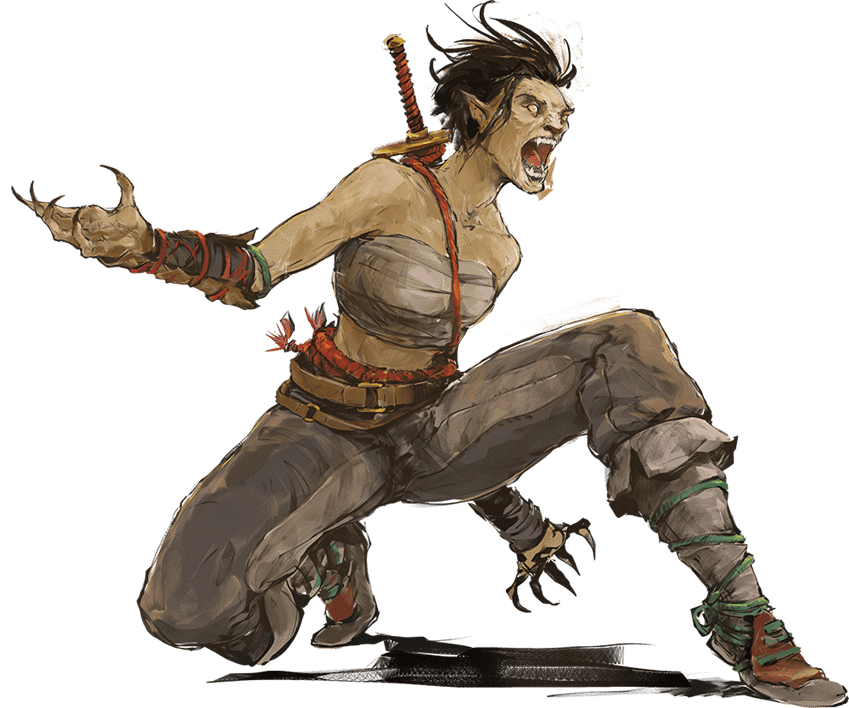
Shifters, native to Eberron, are neither humans nor lycanthropes. Rather, they are something in between. When they are young, a shifter’s inner nature causes them to form a bond with a beast, revealing their true self as they mature by taking on the beast’s characteristics and traits. At first a shifter may appear human, but…
Learn More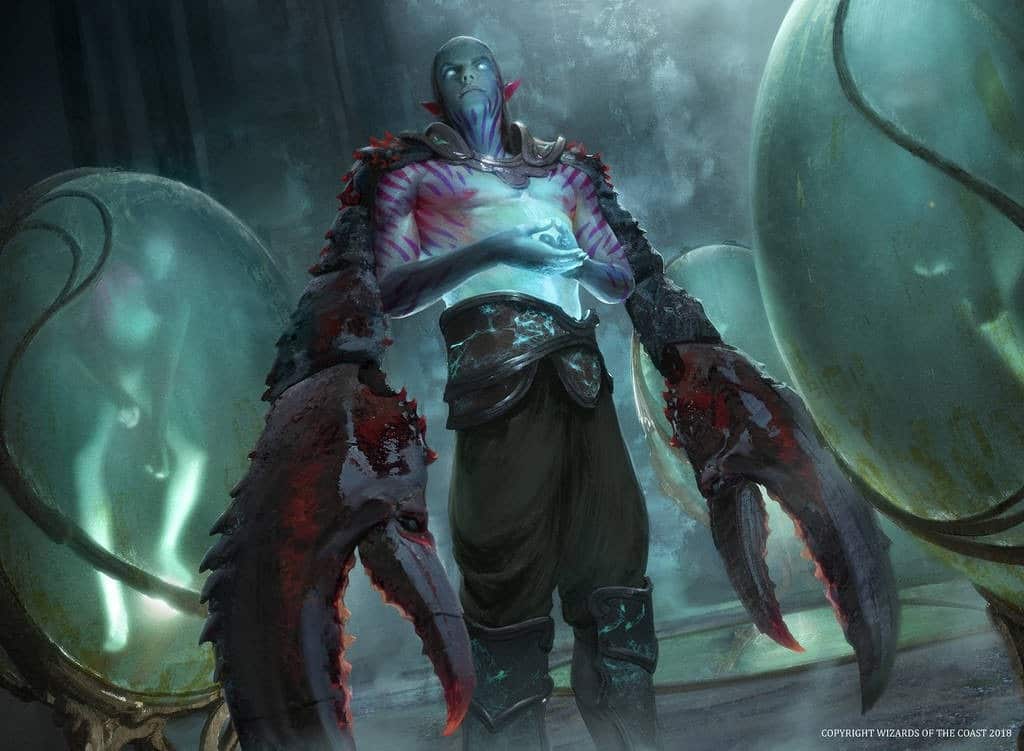
Simic hybrids are the product of experiments conducted by the Simic Combine on the plane of Ravnica. The magic used to fuse different life forms together has resulted in extensive and varied biological enhancements found in the test subjects. The Simic Combine now also creates humanoid hybrid subjects which they hope to use as an…
Learn More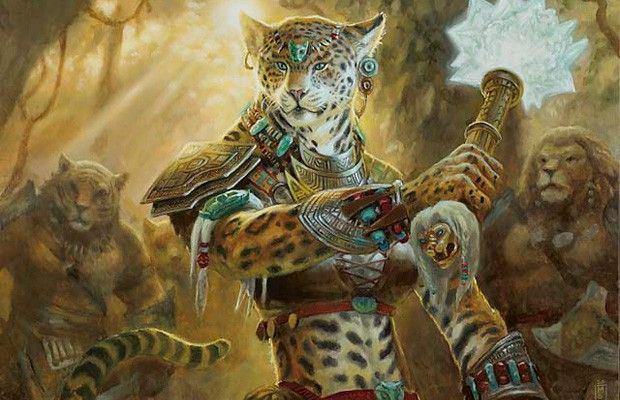
Tabaxi originate from a jungle far away from where most adventures take place in the Forgotten Realms. These tall, feline humanoids tend to remain with their clans in their homeland, but some of been known to travel far and wide to uncover the world’s mysteries and find treasure. Tabaxi are strong athletes with heightened senses,…
Learn More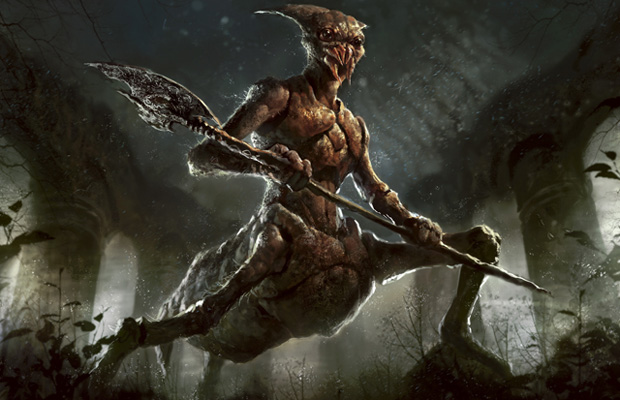
Thri-kreen are bipedal insectile creatures that hail from the deep reaches of Wildspace. They have a unique, chitinous armor that serves as a protection in combat and change change color to allow thri-kreen to blend into their environment. Sporting a pair of secondary arms and insectile head, thri-kreen are not able to speak languages other…
Learn More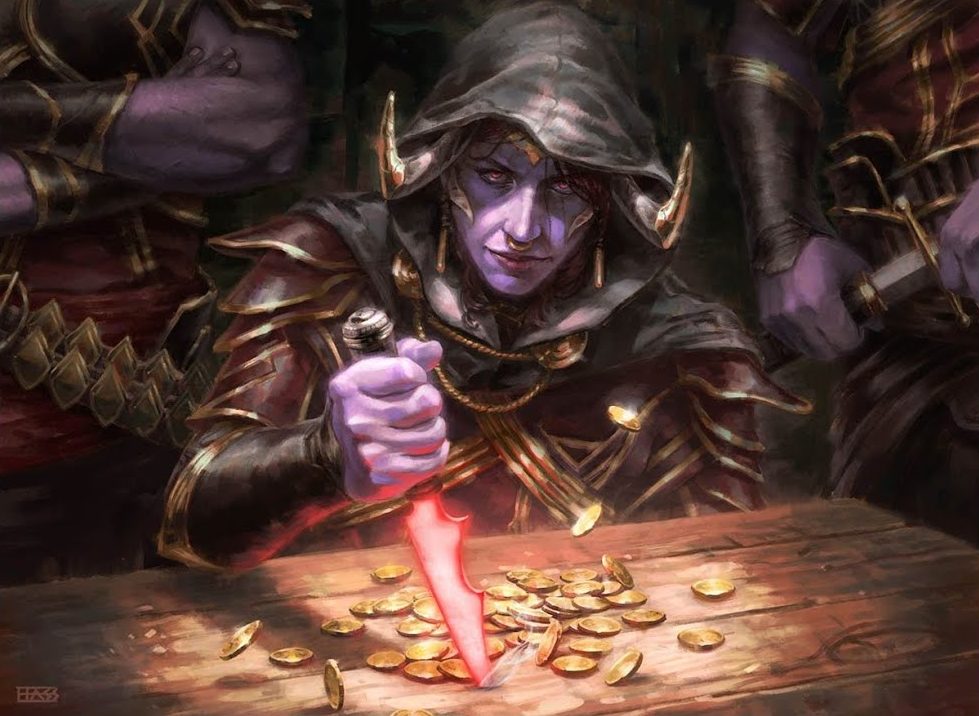
Tieflings are a race of humanoids, descended from demons and devils who had bred with humans long ago. While they are not inherently evil, their appearance likens that of their ancestors, with horns, tails, sharp teeth, and a wide array of eye colors and skin colors. Due to their ancestry, tieflings make great thieves and…
Learn MoreTortles are a simple and friendly race of turtle-like humanoids. Beginning life crawling like regular turtles, they soon are able to walk upright and keenly begin their adventures, living nomadically and exploring the remote regions of the world. Tortles are adeptly in tune with nature and need little more than the pristine views of beautiful…
Learn More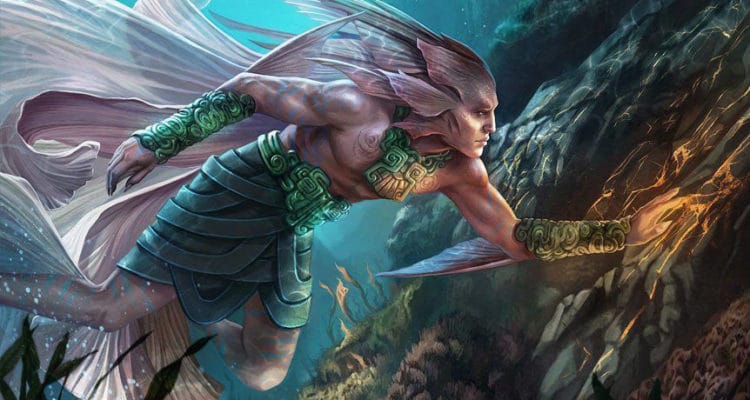
Tritons are aquatic humanoids. They live in deep parts of the ocean, far away from the prying eyes of surface dwellers. In fact, most tritons have never ventured as far as the surface, making them ignorant to the customs of the world above, causing them to come across as rude. These ocean-folk are kindhearted and…
Learn More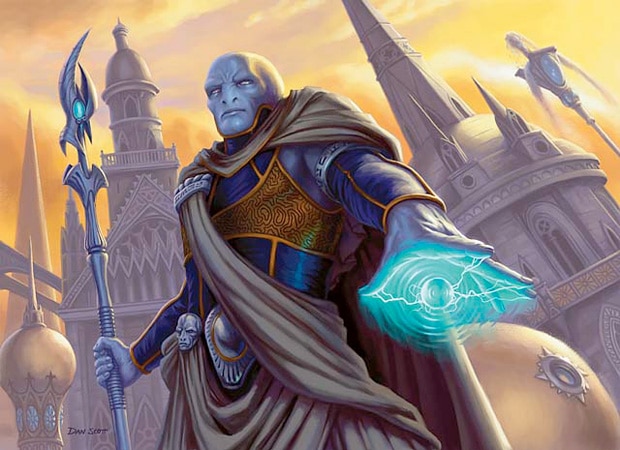
Vedalken are tall, blue-skinned humanoids found on the cityscape plane of Ravnica. Although they tend to be very private individuals, vedalken love to talk, especially when it means they can learn something new. Most vedalken are extremely passionate in their work, using every moment as an opportunity to move towards perfection. Due to their work…
Learn More
The warforged, native to Eberron, were constructed to be soldiers. Although they are made from metal and wood, warforged are sentient beings like any other race in Dungeons & Dragons. They are very much alive, and therefore can be hurt and healed like other humanoids. As their personalities developed over the years, each warforged is…
Learn More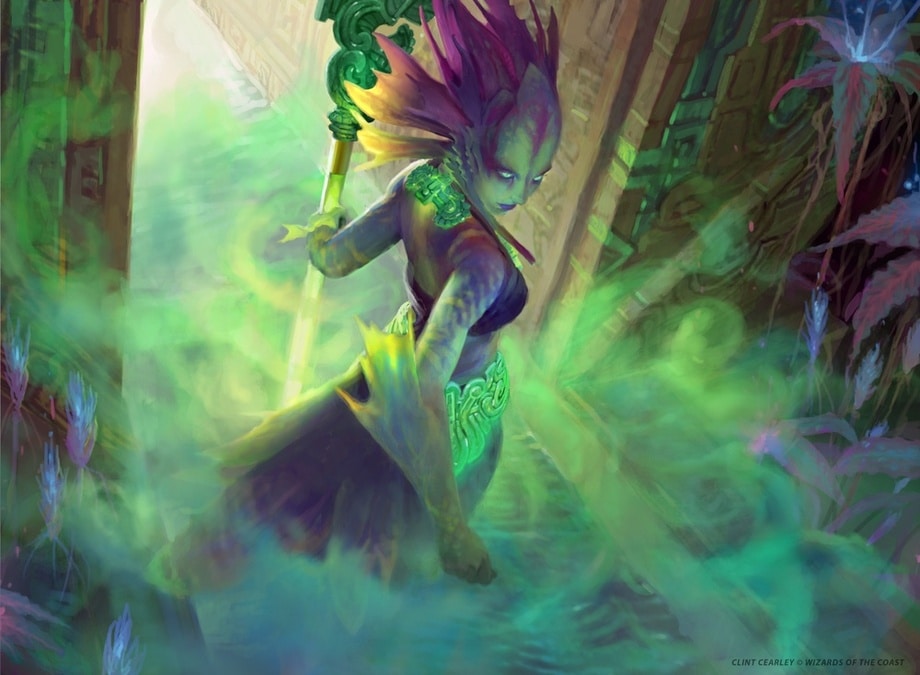
Water genasi are a race of humanoid beings who descended from marids, aquatic genies from the Elemental Plane of Water. They boast water-based abilities and traits, allowing them to completely adapt to underwater survival. They typically have green and blue skin and hair that resembles seaweed. Water genasi are known for having strong ties to…
Learn More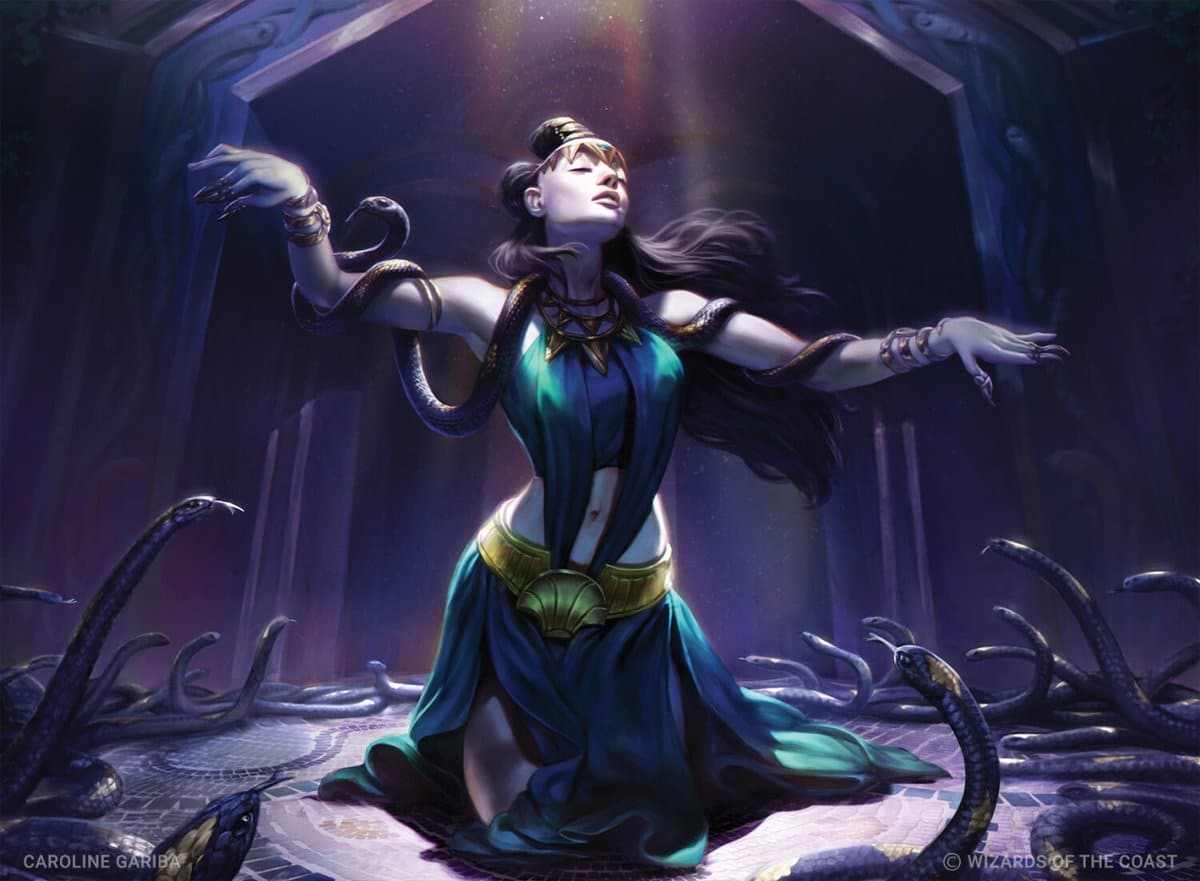
Long ago, the yuan-ti were human. Their ancient civilization worshipped snakes, as snakes embodied all of the qualities they wished to model themselves after. In order to take their intellectual pursuits to new heights, they vowed to separate themselves from emotion by pledging themselves to the serpent gods, and in doing so performed terrible acts…
Learn MoreTasha’s Cauldron of Everything Update
Tasha’s Cauldron of Everything (TCoE) introduced a new option called “Customizing Your Origin”. This optional rule allows you to take the Ability Score Increases (ASI) that you got from your race and apply that to another Ability Score to better represent your unique character.This would mean, if you had an elf that you wanted to be strong instead of dexterous, you could transfer the typical +2 DEX bonus to +2 STR. The only caveats are:
- You can’t bring any ability score above 20
- If you receive 2 ASIs as part of your race, you cannot increase the same ability score twice
Customizing Your Origin also outlines rules for switching out languages and proficiencies from your racial traits, but these have less of an impact on our race and class guides.We have chosen to keep our race and class guides “as is” to represent the typical ASIs, proficiencies, and languages of races as they are displayed in their official sources. Due to the unlimited variability offered by the Customizing Your Origin option, it would be impossible to take all combinations of ASI increases into account.
Races Going Forward
As of Wild Beyond the Witchlight (September 21, 2021), races will go in the direction that Tasha’s Cauldron of Everything started. This direction allows free customization over the race’s ASIs and languages, while still providing certain racial features and proficiencies. The way that races will function in new books is as follows:
Ability Score Increases
No preset ability score increases. After selecting a race, players will choose whether they:
- Increase one ability score by 2 and another score by 1
- Or increase three different ability scores by 1
Age
No age range is provided. Instead, it is stated that races will age similar to humans and will live for about a century if they don’t meet a violent end. A note is provided saying “members of some races, such as dwarves and elves, can live for centuries.” This leaves the actual age range of races up to DMs interpretation.
Alignment
No alignment suggestions will be provided. Characters are to choose their own alignment.
Size
Some character races will be able to choose between the small and medium creature sizes. Also, no suggestions will be made surrounding a race’s typical weight and height.
Languages
Races no longer inherently come with language proficiencies. Instead, characters automatically learn common and are allowed to choose one other language to learn.
